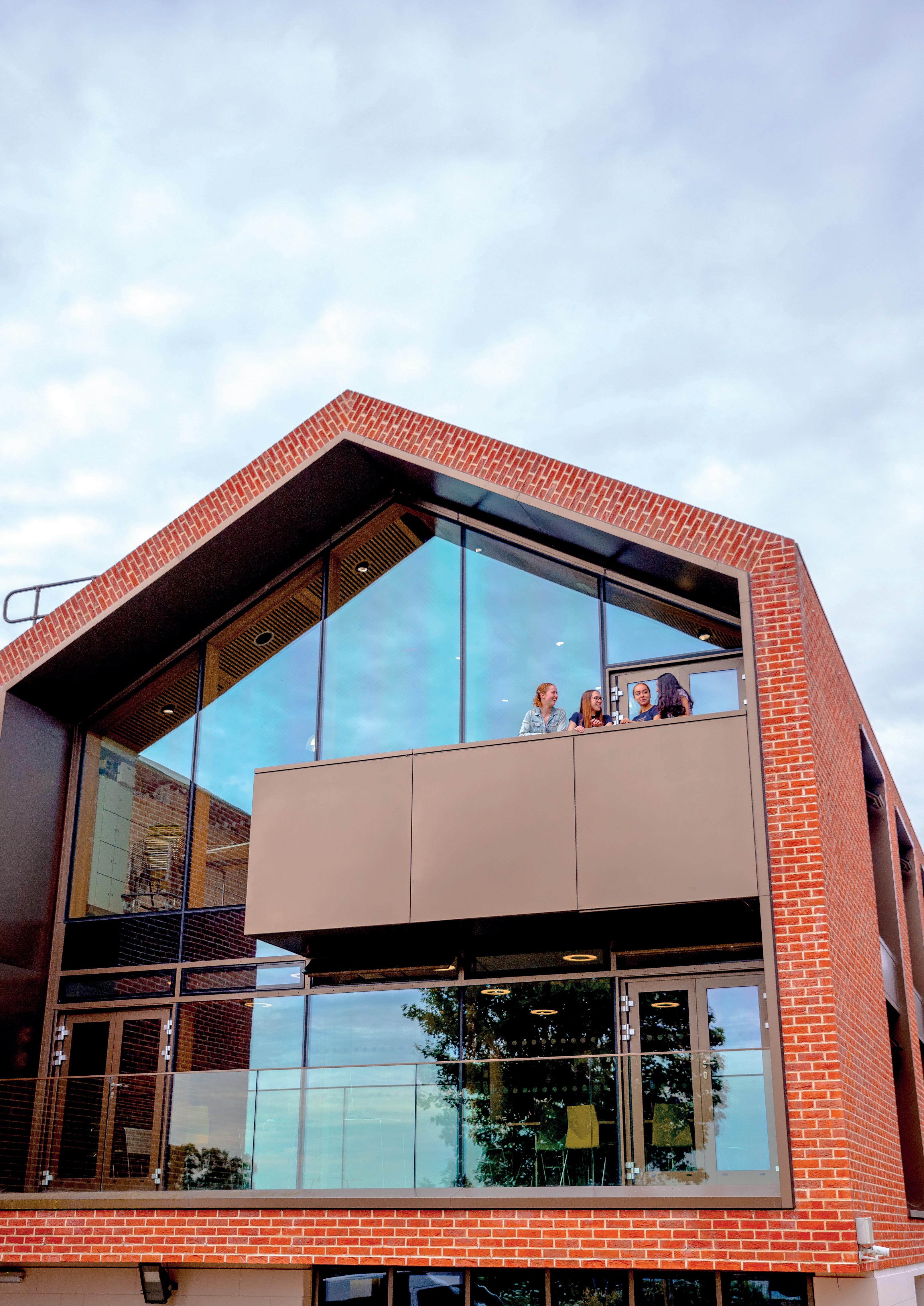
Sixth Form Prospectus 2026 Entry
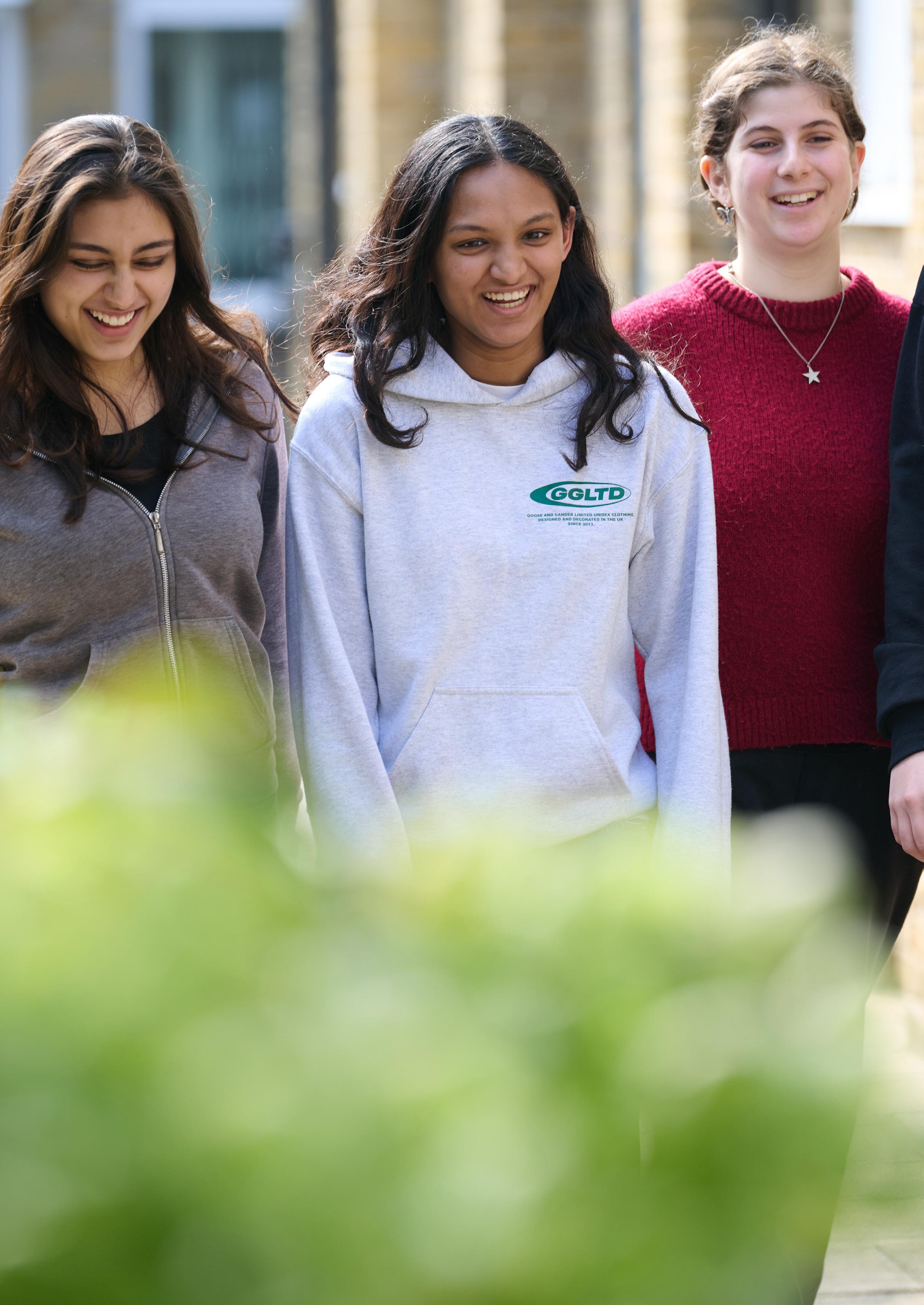


Sixth Form Prospectus 2026 Entry

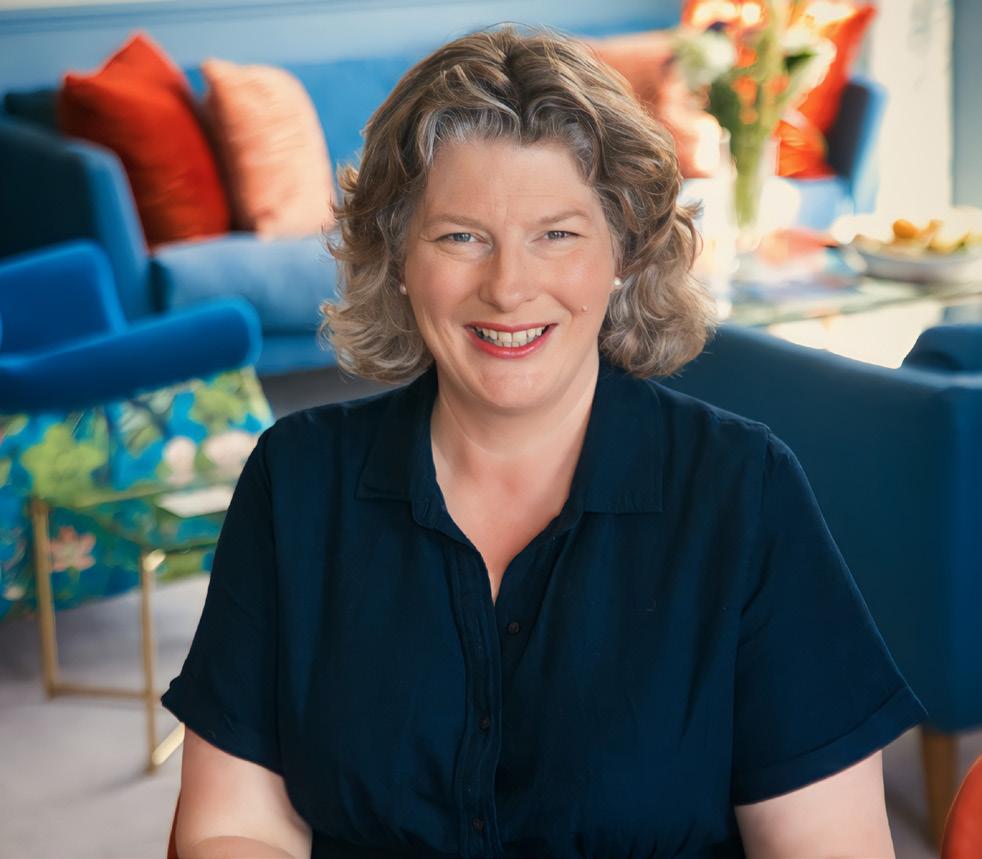
The two years of the Sixth Form are the crowning glory of your school career. Whether you have been at Channing from the age of 4 or 11, are joining us for these two years or something in between, this is the time when all you have done before comes to fruition.
Most obvious, perhaps, is the independence and freedom which comes with Sixth Form life. You have your own Sixth Form Centre, you are studying only the subjects you are most interested in and enjoy and, of course, you are no longer wearing a uniform! Be very clear, however: the Sixth Form is not just ‘more of the same but in your own clothes’. In these two years you will make the transition from school to university, both academically and socially.
Our ethos of Girls Enjoying Success is perhaps more true in the Sixth Form than anywhere else in school. A Level classes are small, the teachers are all specialists in their subject areas and their lessons will challenge, stretch and inspire you. You’re likely to think harder and laugh more in your A Level lessons than any others you’ve experienced. The result is that our students work hard and achieve highly, experiencing the real satisfaction that comes from reaping the rewards of the effort they put in.
The outcome? Fabulous A Level results and university offers met. Students will head to their chosen university and highly competitive courses both in the UK and overseas. But we know that’s not the sum of every student’s aspirations and whatever your chosen path, you can rely on the expert advice of the experienced university admissions and careers staff who will be there to guide you.
However these two years are about far more than just A Level exams and university entry. Sixth Form students are the leaders of the school. You have the chance to give back to the wider community through our partnership projects too. We also encourage you to develop an intellectual curiosity about the world beyond your syllabus.
Our alumnae always view their two years in the Sixth Form as the time of their lives, citing the fun they had, the friends they made and the opportunities it gave them to take a leading role in the life of the school. I have no doubt that the same will be true for you.
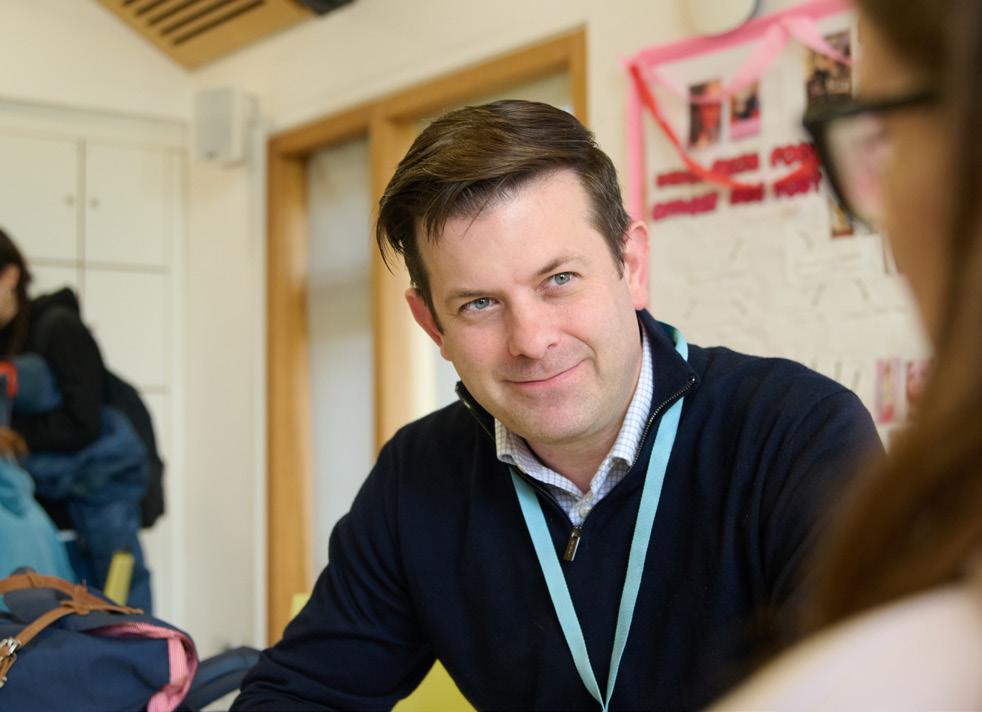
Mr Geordie Raine ACTING DIRECTOR OF SIXTH FORM
Welcome to Channing Sixth Form, an inspiring, supportive and enriching environment with specialist facilities and excellent teaching, where you will enjoy a whole host of opportunities to fulfil your academic potential, nurture your individual passions, and make lifelong friends.
We strongly believe that our Sixth Formers should leave Channing with more than just a set of outstanding academic qualifications; the Sixth Form years at Channing will enable you to develop those skills necessary to succeed in life beyond school, and to flourish in today’s complex, modern world.
A Level classes are small, the teachers are all specialists in their subject areas and their lessons will challenge, stretch and inspire you.
Our curriculum, careers guidance, pastoral care, extracurricular activities, leadership opportunities, and community initiatives will ensure that, as a Channing Sixth Former, you will become a global citizen who is kind, confident, independent, articulate, intellectually curious and ready for life’s challenges.
We look forward to seeing you in Channing Sixth Form.
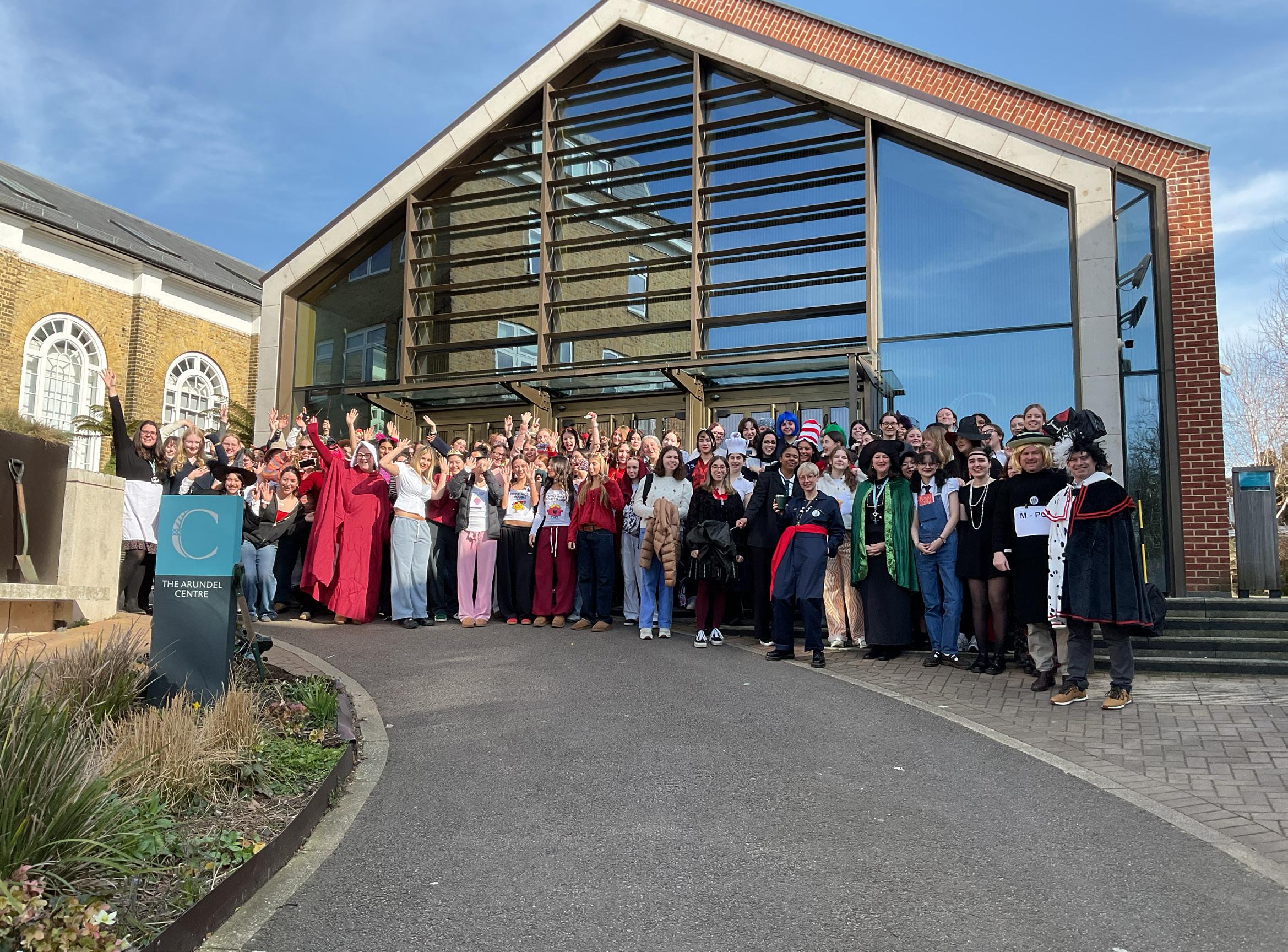
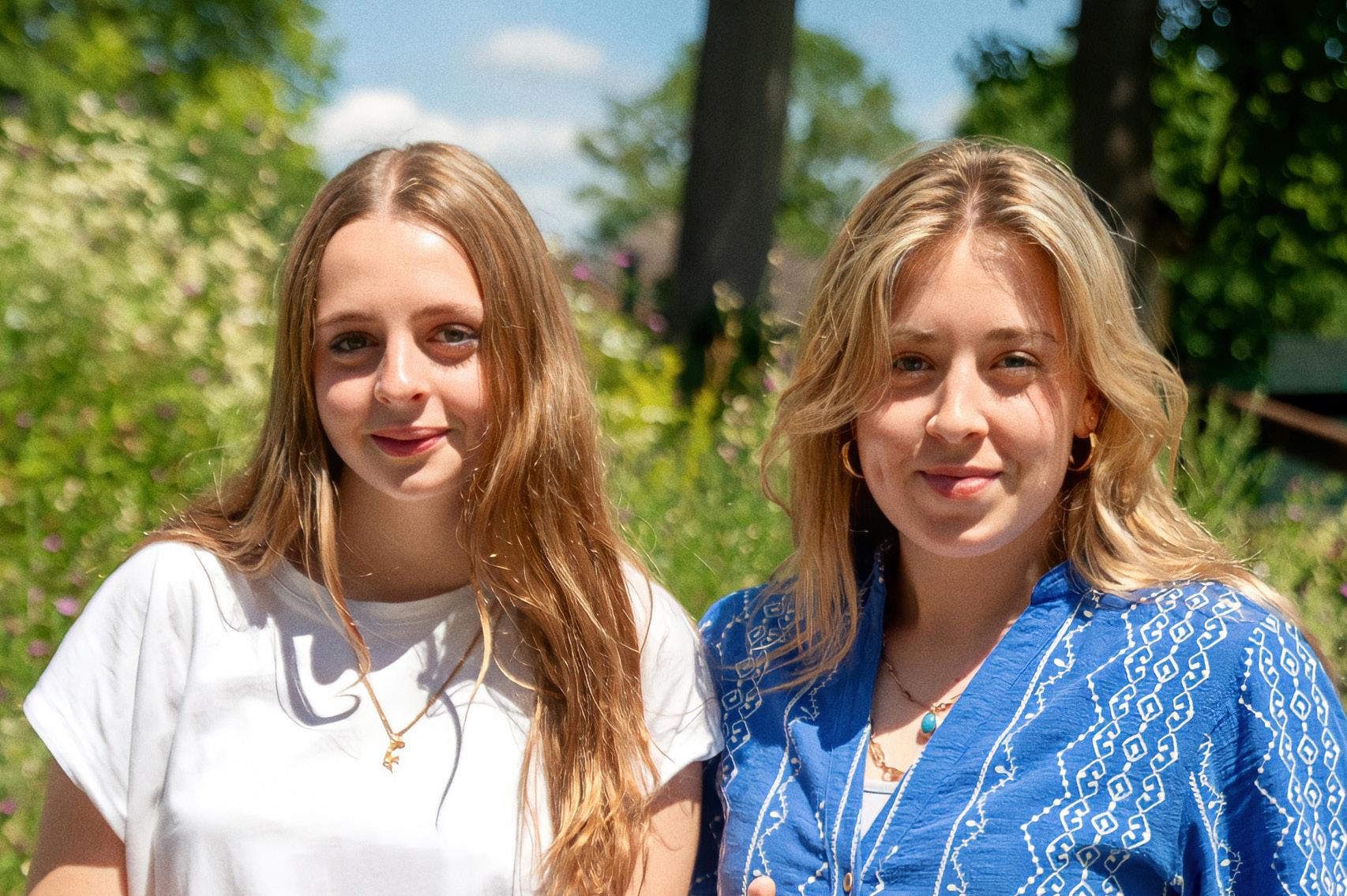
The Sixth Form is the pinnacle of your Channing career and is a liberating experience. Class sizes are smaller, which allows you to forge a closer relationship with your fantastic teachers. You can explore ideas and topics within your subjects, which you may not have had the chance to do before. On a personal level, you have the freedom of not wearing a uniform, and the responsibility of meeting deadlines and managing your time effectively.
The opportunities in Sixth Form are endless. From day one you are encouraged to explore areas that interest you, be it volunteering for a charity, taking part in a work experience placement, attending careers talks, running a club or making a suggestion for a new enrichment rotation.
The Sixth Form Centre is set apart from the rest of the school, which fosters an independent and calm atmosphere. It’s away from the hustle and bustle of the main school; the modern classrooms and study areas allow you to immerse yourself in your work. However, moving into the Sixth Form isn’t just about studying.
We are a tight-knit community and spend time socialising with everyone. You will often find yourself making toast in the Sixth Form kitchen chatting to students in both year groups.
We are a tight-knit community and spend time socialising with everyone. You will often find yourself making toast in the Sixth Form kitchen chatting to students in both year groups.
Leadership roles in the Sixth Form make us feel as though we are making a difference in the Channing community. These roles are coveted from an early age. It’s not unusual for pupils in Year 7 to aspire to be one of the officers.
Channing has a fantastic Careers Department and we are encouraged to seek work experience and advice well before we reach the Sixth Form. In the Sixth Form, the careers pathway develops. There are regular talks from people outside of the school who are trailblazers in their field. These are very useful as they provide greater insight into careers that may be appealing. Although we have yet to go through the UCAS application process, we have seen the support Channing gives to the Year 13 students. We know that our teachers and tutors will do everything they can to ease the stress and give you the help to achieve your full potential.
The Sixth Form curriculum encompasses breadth, diversity and challenge, and you are encouraged to study subjects that you enjoy, as well as those at which you naturally excel.
Making decisions about academic options can be an exciting, but often also a daunting, process. Before settling on your choice of subjects it is important to consider several key elements.
Firstly, it is essential to be informed as to whether the requirements of a specific course, career path, or profession need to be taken account of in the decisionmaking process. Some university courses insist on certain A Level subjects: for example, a degree in Economics usually requires A Level Mathematics, whereas applications for Medicine will normally be expected to include Chemistry and another Science as A Levels. Ms Wilberforce (Head of Careers & Higher Education), the UCAS website and university prospectuses will provide more detailed information on individual course requirements.
Secondly, it is important to consider academic strengths. Some students gravitate towards essay-based subjects, while others feel more comfortable working in a laboratory or with numbers. Given the academic demands of A Levels, it is highly advisable to factor in any particular areas of strength to the decision-making process.
And thirdly, interest in and enjoyment of the subjects is an element that should not be discounted. Motivation will potentially come from a variety of different factors, such as long-term career goals, but being able to study something that genuinely excites and inspires you every day is invaluable.
Regardless of the weight of each of the factors that ultimately contribute to your individual decision, studying A Levels will be a very different experience to that of GCSEs. Smaller class sizes, stimulating teaching, and effective learning strategies will ensure that even though the Sixth Form curriculum will be challenging, it will also be fulfilling and exhilarating.
Students may choose three or four subjects, subject to timetabling constraints. Those selecting four should plan to study these for the full two years, although they may elect to drop one subject at the end of Year 12 if they wish.
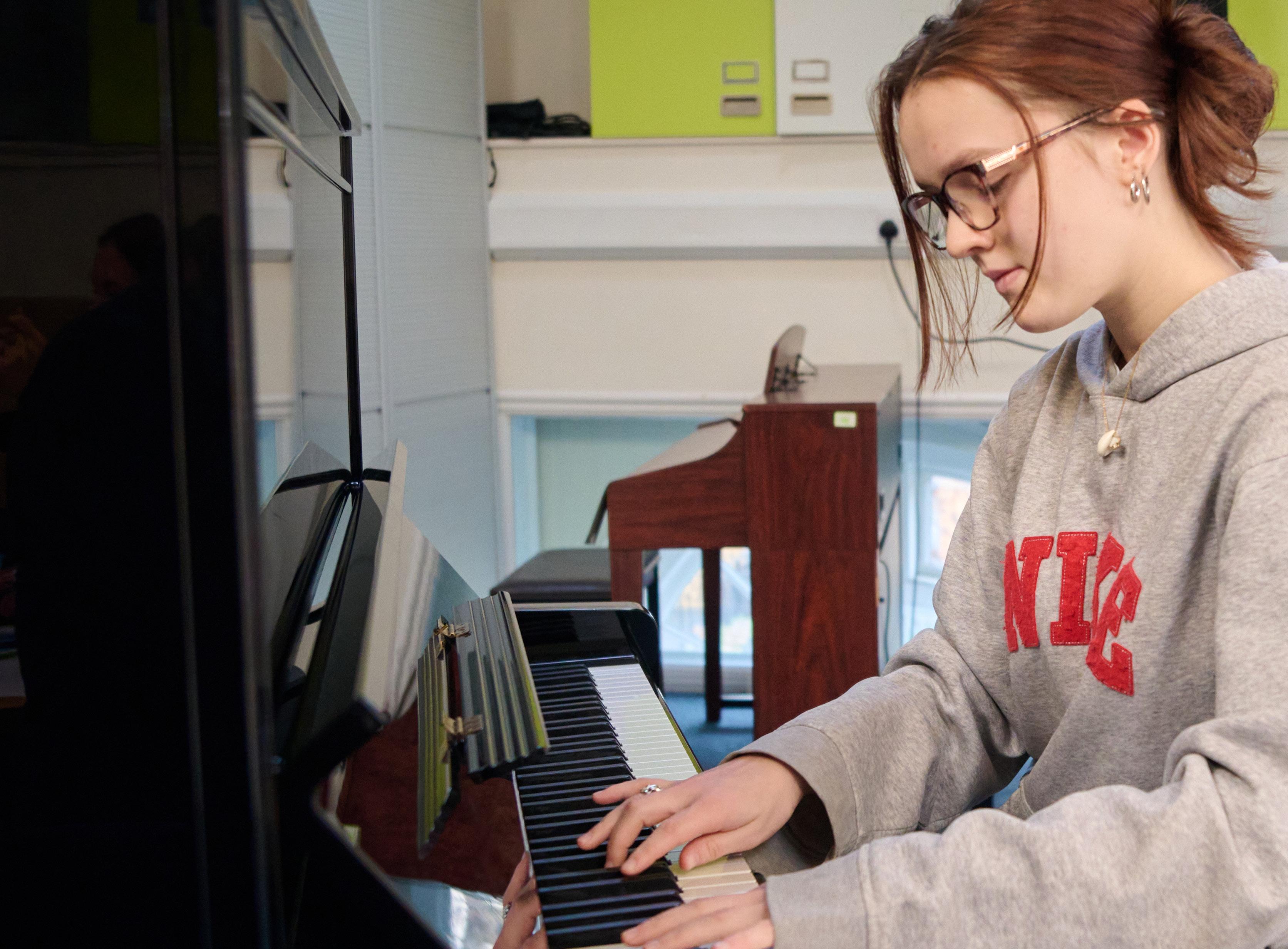
At Channing every teacher has their own style and plans lessons that focus on learning. We know that great A Level teaching and learning cannot be achieved by following a recipe, but there are some clear pointers in the research to approaches in the classroom that are most likely to be effective. Channing teachers use researchbased methods and their wealth of experience to deliver high-quality teaching and learning. As well as research for teachers there is also a wealth of research aimed at students and how they learn best.
We ensure that our Sixth Form students understand this research behind the science of learning. We share with them what we know about the habits of the most successful learners at A Level, so that they can realise their potential using the most effective learning strategies.
Throughout Year 12 and 13 we speak to our Sixth Formers about the importance of retrieval practice, spaced learning and interleaving. We look at the research behind stress mindsets and resilience, offering practical advice at key points during the year. We want our Sixth Formers to be fearless in their learning. Being a Fearless Learner is about embracing challenges, developing effective learning skills, attitudes, aptitudes and independence ready for the world beyond Channing.
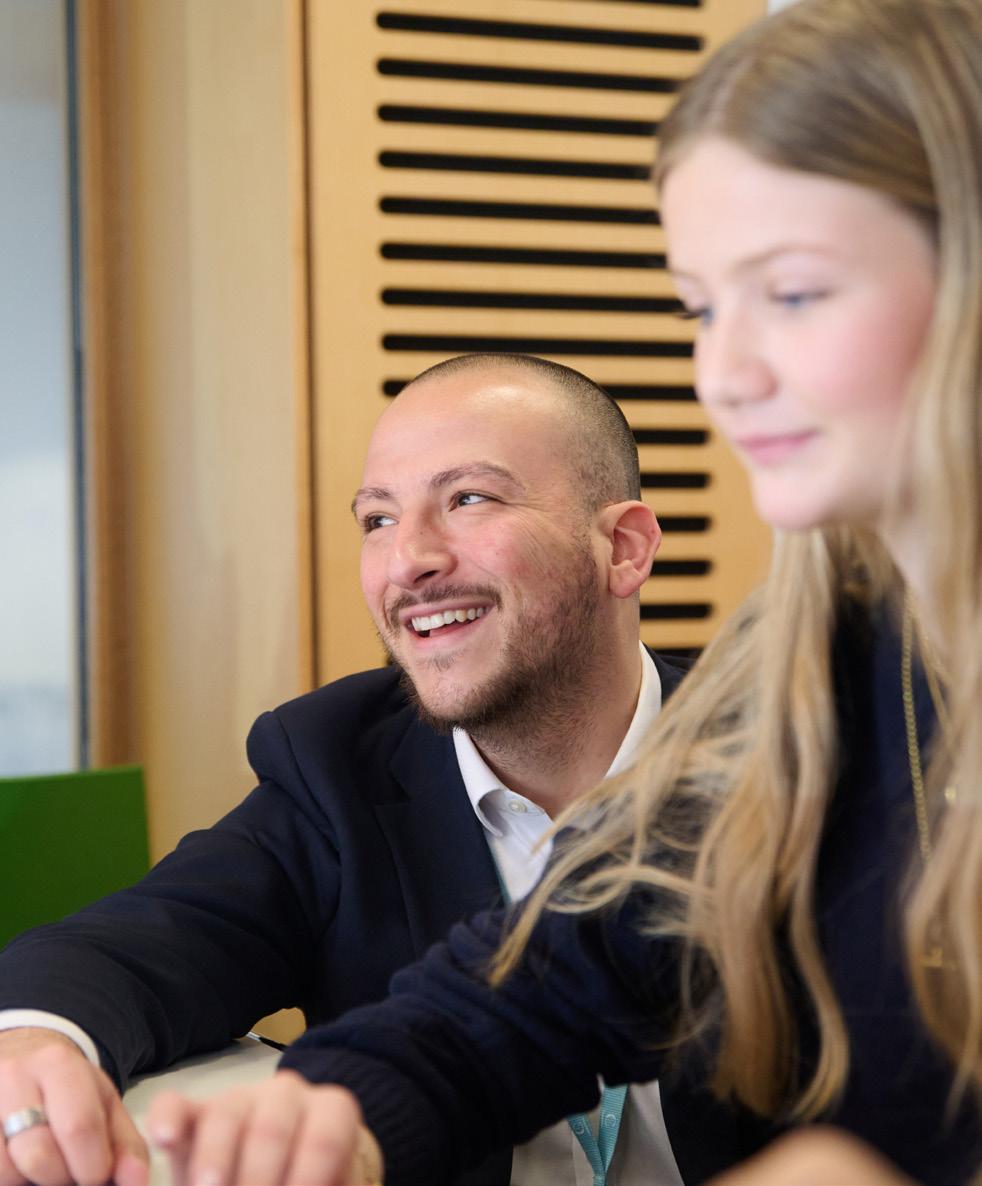
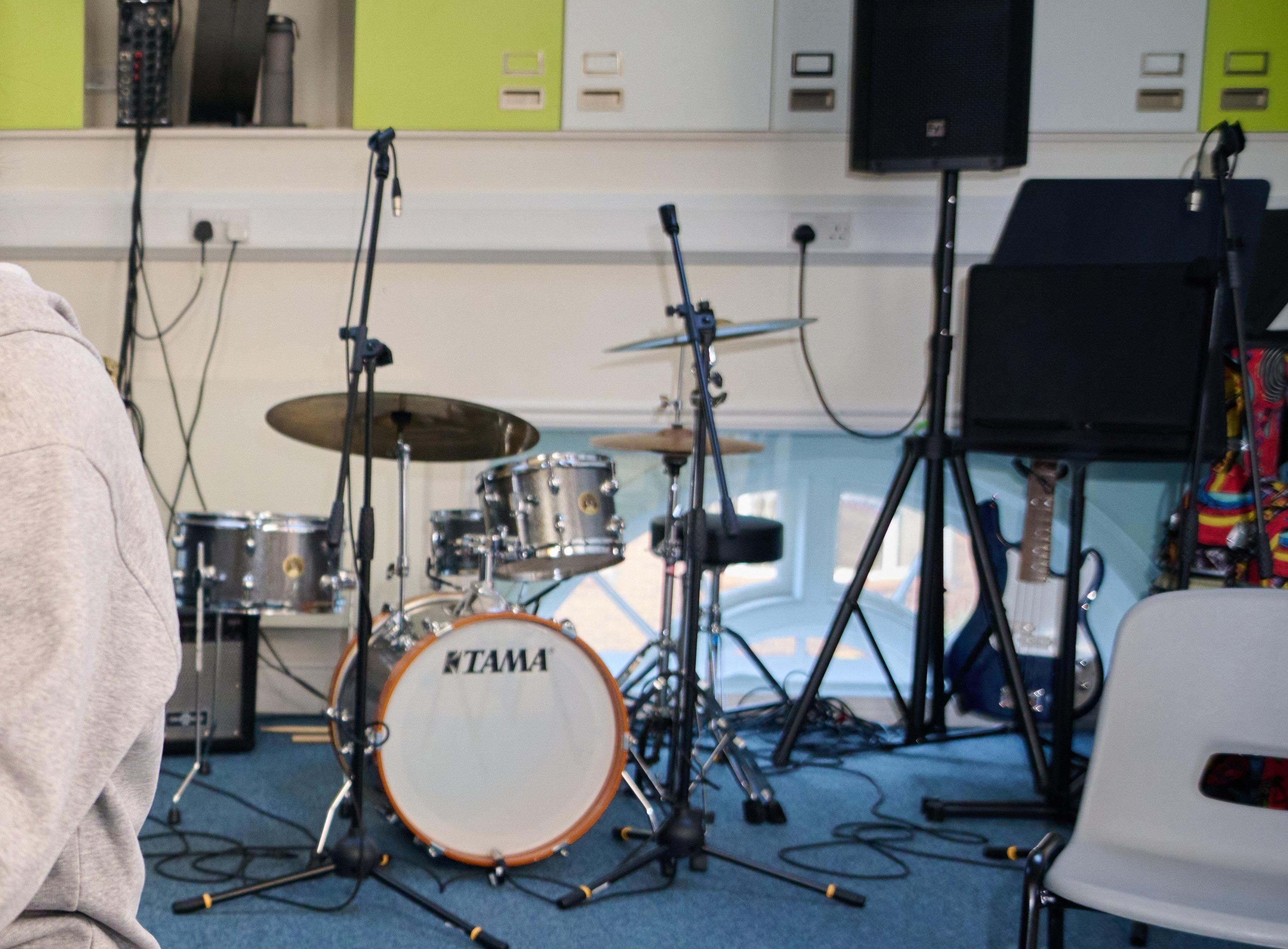
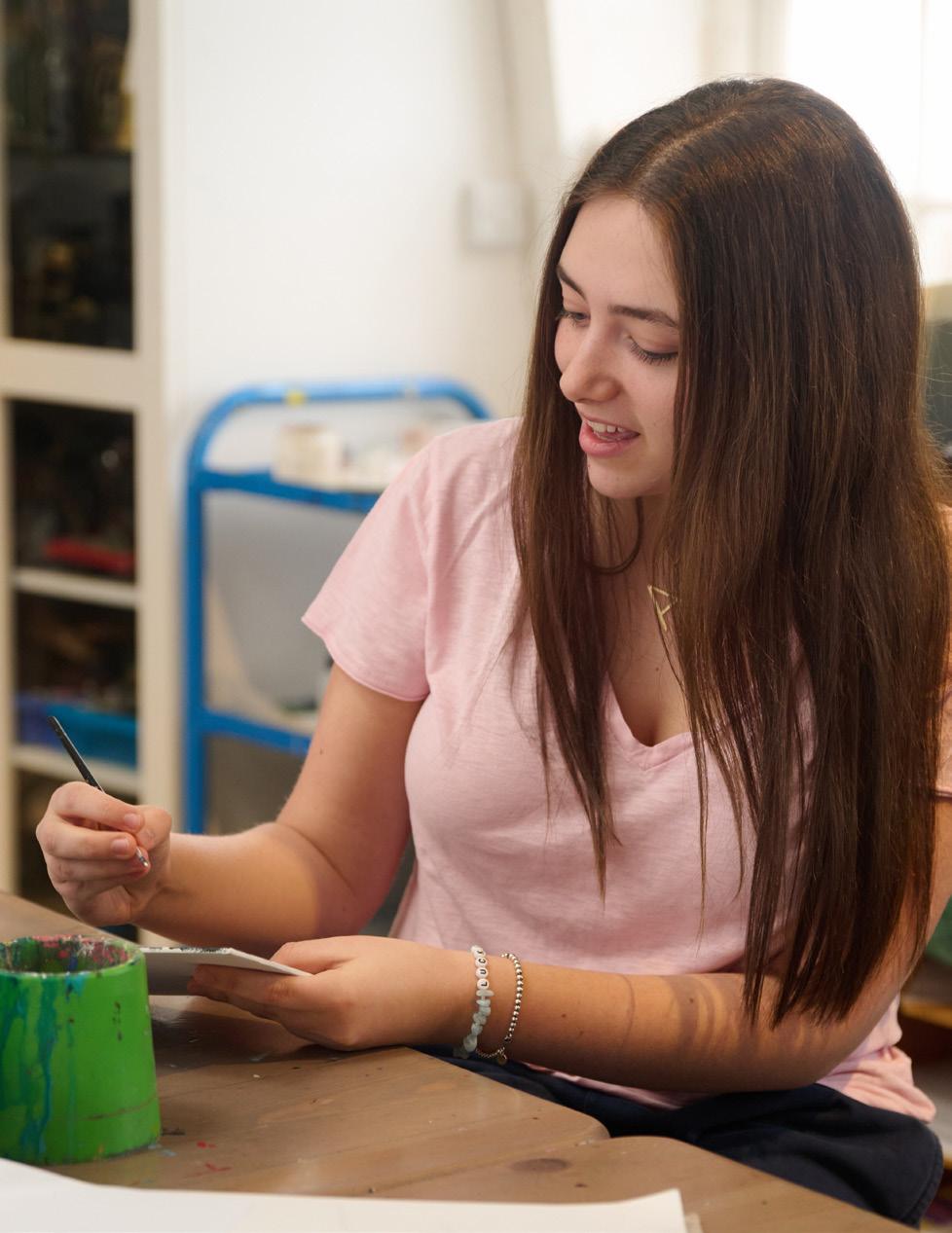
Biology is the branch of science concerned with the study of living organisms. Within Biology there are different and diverse fields of study, for example: biochemistry, cell biology, ecology, anatomy, physiology, botany, microbiology and genetics.
Biology is for students who are curious about the complexities of all living organisms; from singlecelled species to more complex multicellular plants and animals. They enjoy developing a detailed knowledge of the many diverse areas of biology and take pleasure in finding links between topic areas. Successful Biology candidates have a proactive and independent approach to study to ensure their knowledge is complete. They remember and act upon advice given to develop their own understanding of the course content and how to approach a variety of examination question styles. Practical work is an integral part of the course that develops laboratory skills by using a variety of apparatus and techniques.
Course Content and Components
The course investigates visual phenomena in all its forms through practical, studiobased work using both traditional and contemporary methods. Drawing is a core practice that underpins applied projects, and academic research is a key focus in the second year of the course.
Art is for creative, maverick students; those who can draw, those who like to take risks and those fascinated by visual phenomena.
Course Content and Components
Unit 1: Personal Investigation: Comprises coursework portfolio, final solution and written personal study. Unit 2: Externally set assignment: Creative development of a given theme. Concludes with 15-hour controlled element.
Recommended entry requirement
At least GCSE Art at Grade 7. Exceptions can be made for candidates demonstrating potential.
Post A Level Options
Essential for most Art-related disciplines, especially Art Foundation courses and Fine Art degrees.
Paper 1: Molecules, cells, biodiversity, exchange and transport (35%). Paper 2: Energy transfer, genetics, populations, response to stimuli (35%). Paper 3: All content, all practical techniques and an essay (30%).
At least 15% of the marks will examine practical techniques and 10% of the marks will examine mathematical skills.
Recommended entry requirement
At least Grade 7 in IGCSE or GCSE Biology or 7/7 in Double Award Science.
Post A Level Options
Students can continue with their study of Biology by taking a degree in biological sciences, or can become more specialised for example, with a degree in biochemistry, zoology, natural sciences or psychology. Biology is also required for many medicine, veterinary medicine and dentistry courses.
Chemistry is the branch of science concerned with the substances of which matter is composed, the investigation of their properties and reactions, and the use of such reactions to form new substances. The course involves the study of the three main branches of chemistry; physical, inorganic and organic chemistry.
You’ll find chemistry everywhere. Pick up a can of soft drink: the aluminium can, the pigments in its coating, and the carbonated liquid inside. Studying Chemistry provides insights into a variety of physical and biological phenomena and provides an excellent basis for understanding the physical universe we live in.
A Level Chemistry is divided into three main areas: physical, organic and inorganic. In physical chemistry students study: atomic structure; chemical bonding; energetics; kinetics and equilibria; redox reactions; electrochemistry; and acids and bases.During inorganic chemistry lessons, students learn about: periodicity; reactions of Group 2 and 7; properties of Period 3 elements and their oxides; transition metals; and the reactions of ions in aqueous solutions.
In organic chemistry we study: nomenclature; the reactions and mechanisms of alkanes and their derivatives; isomerism; biochemistry; aromatics; organic synthesis; and spectroscopy. The course is assessed in three two-hour written examinations at the end of the course.
Paper 1 assesses physical and inorganic chemistry, Paper 2 assesses physical and organic chemistry, and Paper 3 is synoptic. There is no coursework component, but all students must complete the Common Practical Assessment Criteria (CPAC). CPAC comprises twelve practical tasks that are completed during lessons. Questions on these tasks later form part of the written examinations.
Recommended entry requirement
At least Grade 7 in IGCSE or GCSE Chemistry or 7/7 in Double Award Science.
Chemistry allows you to develop excellent laboratory skills and mathematical ability, as well as giving you transferable skills, such as problem-solving, time management and data analysis. The main employers of chemistry graduates are in the chemical and related industries. However, chemists are also employed in the food and drink industry, health and medical organisations and the government. Chemistry is a vital A Level for those who want to study Medicine or Biomedical Sciences.
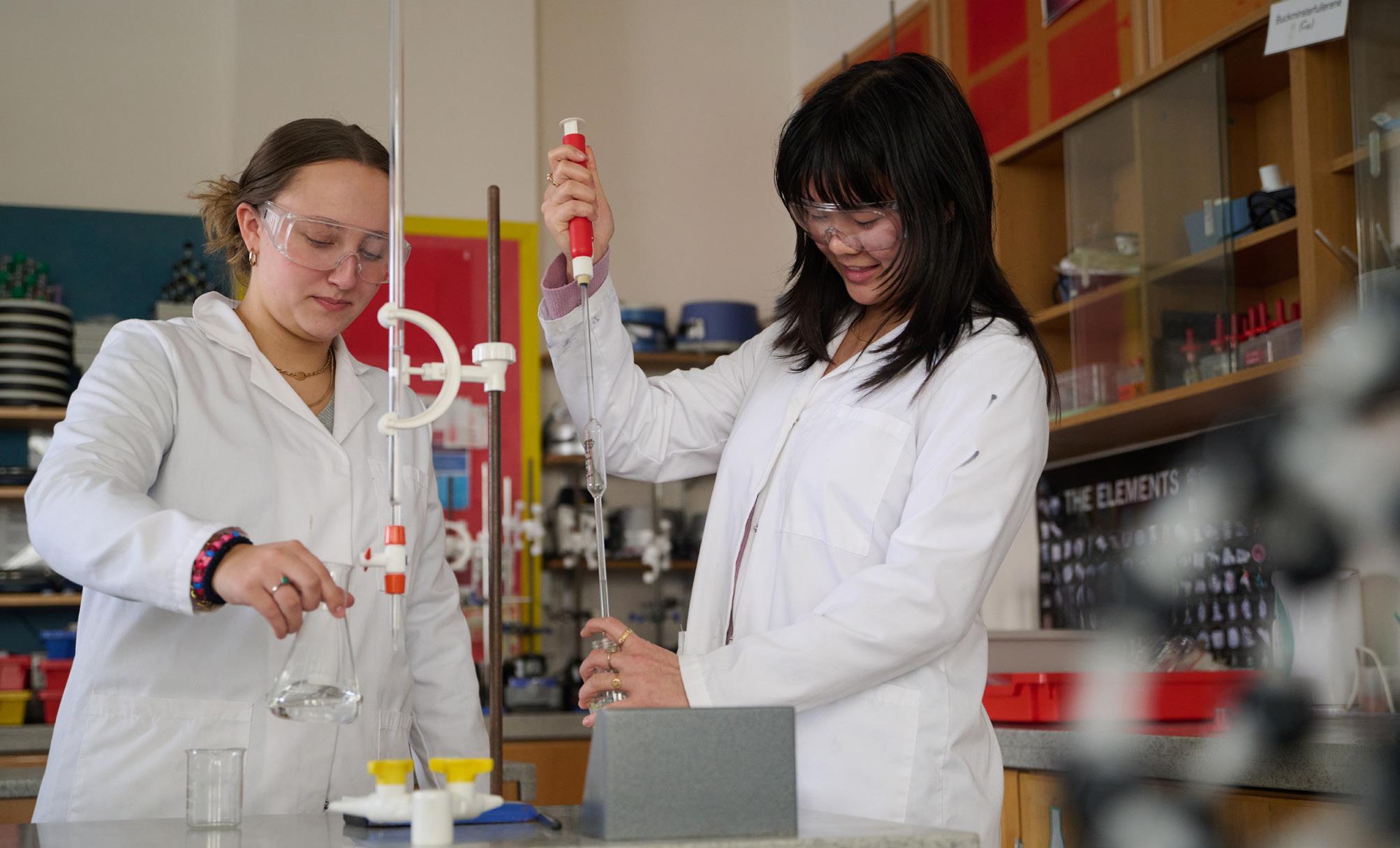
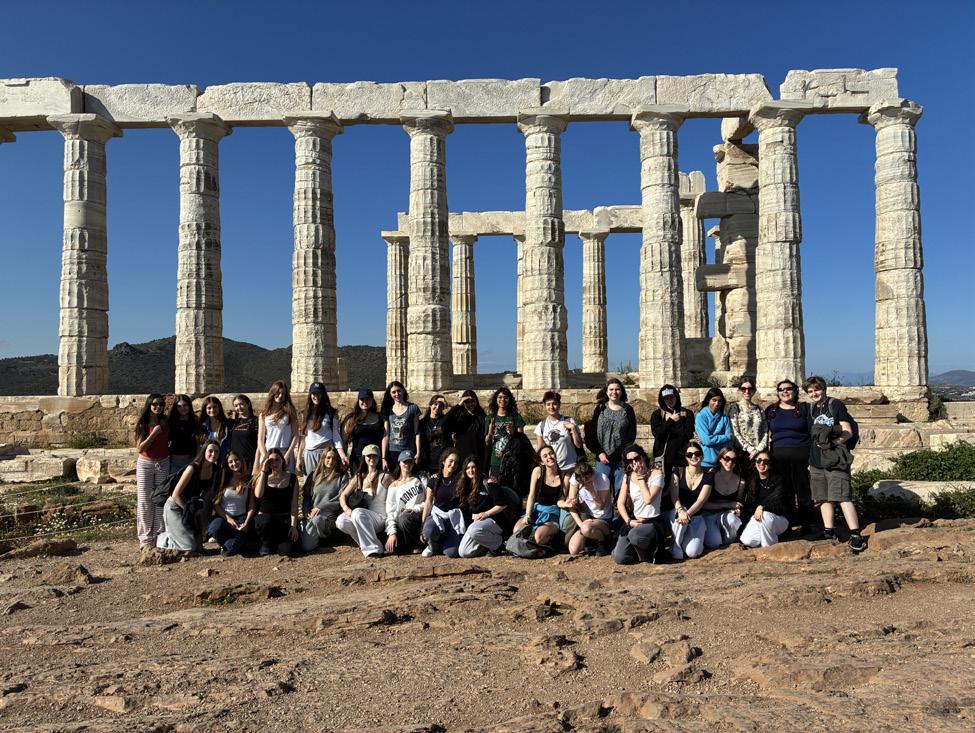
Classical Civilisation is the study of the ancient Greek and Roman civilisations through texts in translation as well as ancient artefacts.
Is Classical Civilisation for you?
Classical Civilisation will appeal to anyone with a passion for the literature, history, society and/ or material culture of the ancient world, as well as the ways in which its legacy has been received and transmitted over the past millennia.
From Platonic philosophy to controversial Roman love poetry, Greek heroes and battles to spectacular ancient sculptures, Classical Civilisation students enjoy the rich variety of literary and visual masterpieces we study, at the same time gaining real insight into the lives and beliefs of the ancients.
Course Content and Components
Paper 1: ‘The World of the Hero’: Homer’s ‘Iliad’ and Virgil’s ‘Aeneid’.
Paper 2: ‘Culture and The Arts’: Greek Art, including freestanding sculpture, architectural sculpture and vase-painting.
Paper 3: ‘Beliefs and Ideas’: ‘Love and Relationships’.
Recommended entry requirement
At least Grade 7 in Classical Civilisation (if taken at GCSE), otherwise Grade 7 in an essay subject is recommended, as well as an interest in the classical world.
Post A Level Options
With its focus on literature, history, society and material culture, students have gone on to a variety of degree choices, ranging from Classics, Archaeology and History to Theology, Business and International Relations.
Classical Greek involves the study of the language and literature of ancient Greece, ranging from the Homeric epic poems written in the 8th century BC to the classical Attic prose and verse of Xenophon and Sophocles.
Is Classical Greek for you?
If you enjoyed studying Classical Greek at GCSE, you will enjoy the A Level, which similarly combines the development of your linguistic skills in translating Attic Greek with the study of a variety of exciting literary texts.
There are few greater joys for a Hellenist than reading Homer in the original Greek written down 2700 years ago, accessing the full power of his characterisation, speeches and narrative.
Course Content and Components
Component 1 (33%): Unseen Translation and Comprehension (prose and verse)
Component 2 (17%): Prose Comprehension or Composition
Component 3 (25%): Prose Literature: Herodotus’ ‘Histories’
Component 4 (25%): Verse Literature: Homer’s ‘Odyssey’
Recommended entry requirement
At least Grade 7 in Classical Greek (if taken at GCSE), or successful completion of the Intermediate Certificate in Classical Greek and continuation of your study of Classical Greek in Year 11.
Post A Level Options
The study of a classical language at A Level can lead on to degrees in English, Modern Foreign Languages, History and Politics, as well as Classics.
CAMBRIDGE INTERNATIONAL COURSE CODE 9618
Computer Science is a discipline which requires thinking both in abstract and in concrete terms. On a higher level, computer science is concerned with problem solving: modelling and analysing problems, designing solutions, and implementing them. Problem solving requires precision, creativity, and careful reasoning.
Studying Computer Science allows you to study topics including Artificial Intelligence, real-world systems, computational thinking, helping you to develop problem-solving skills, design systems, communication and Internet technologies, hardware, software development, and relational database modelling. A Level Computer Science also provides a good grounding for other subjects that require computational thinking and analytical skills.
Course Content and Components:
Paper 1 - Theory Fundamentals: 25% of A Level.
Paper 2 - Fundamental Problem-solving and Programming Skills: 25% of A Level.
Paper 3 - Advanced Theory: 25% of A Level.
Paper 4 - Practical: 25% of A Level.
Recommended entry requirement
At least a grade 7 in Computer Science is expected but not essential and at least a grade 7 in Mathematics.
What can Computer Science lead to? A good grade in Computer Science at A Level is valued by universities and employers since it requires the development of analytical thinking and problem-solving skills. This course also lays an appropriate foundation for further study of Computer Science, Engineering, Physics or related subjects in higher education.
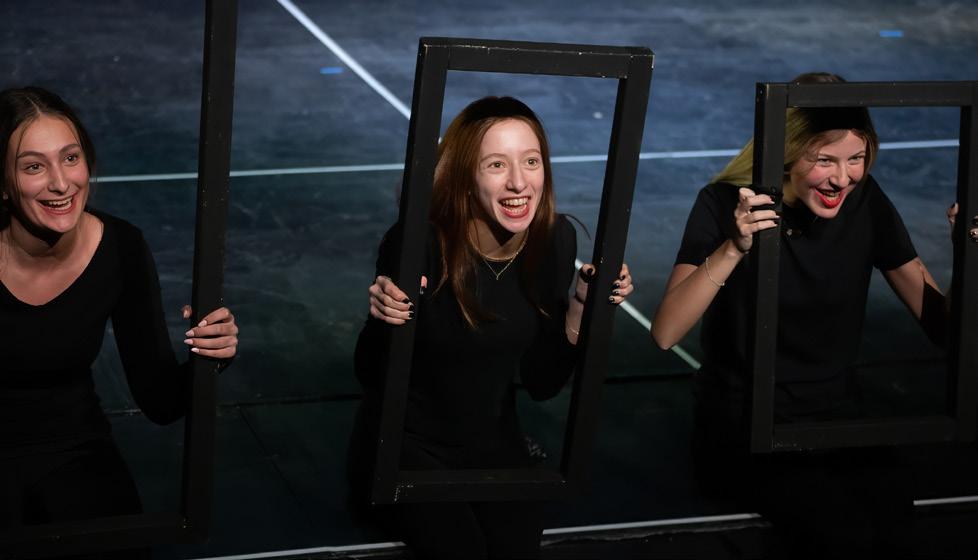
EDUQAS SPECIFICATION CODE A690QS
A Level Drama and Theatre Studies is where live performance meets theoretical analysis. Practitioners and companies, theatrical styles and genres introduced at GCSE are more extensively explored in this two year course.
This stimulating and engaging course will see you study five performance texts throughout the A Level course. This comprises two complete texts and three key extracts from three different texts which represent a range of social, historical and cultural contexts. Learners are expected to respond to all texts as designer, director and/or actor.
Course Content and Components:
Component 1: Theatre Workshop Reinterpreting a text in order to create a new piece of theatre. Students will put a new spin on a text applying the ideas of the chosen practitioner. Performance accompanied by a Creative log. Component 2: Text in Action Use a stimulus to create two pieces of live theatre. One performance should use methods of a chosen theatre practitioner. The second performance should use an extract from a text in a contrasting style to that of your devised performance. Performance accompanied by a process and evaluation report. Component 3: Written Exam • Two complete texts ‘Home, I’m Darling’ by Laura Wade and ‘The Arsonists’ by Max Frisch • One extract from Philip Pullman’s ‘The Book of Dust - La Belle Sauvage’ adapted by Bryony Lavery.
Recommended entry requirement
Grade 7 or above in Drama (if taken at GCSE), otherwise a passion for Drama, and an enjoyment of performing and working with others. A love of attending the theatre and possibly an interest in costume, lights or set design would also be useful.
The creative industries are one of the fastest growing and highest grossing sectors in the UK today. Universities and employers recognise Drama students as possessing both vital interpersonal skills and specialised cultural capital. The highly developed interpersonal skills and ability to articulate and perform under pressure will be an advantage in your academic or professional career.
PEARSON SPECIFICATION CODE 9EC0
Economics is the study of how societies, governments, businesses, households and individuals allocate their scarce resources to produce valuable goods and services, and how these are distributed among different people. This means that as a society, we must make informed choices to ensure that our resources are used in the most efficient and ethical way.
Economics is for students who are interested in the ever-changing modern world and its interconnectivity. This subject is also about people and how we behave individually as well as in a society. Students will be expected to take an active interest in current affairs, confront serious ethical issues and engage in debate and discussion.
Course Content and Components
Paper 1: Markets and Business Behaviour
Focuses on microeconomics, including the nature of markets, market failure, government intervention and business behaviour. (35%)
Paper 2: The National and Global Economy
Covers macroeconomics, including economic performance, government policy, financial markets and international trade. (35%)
Paper 3: Microeconomics and Macroeconomics
A synoptic paper drawing on content from both micro and macro, applying theories and concepts to a range of real-world contexts and data. (30%)
Recommended entry requirement
At least Grade 7 in Mathematics GCSE and a genuine interest in current affairs.
Students with A Level Economics have access to a wide range of higher education opportunities and possible careers such as law, business, accounting, politics, banking, finance and, of course, economics itself.
EDUQAS SPECIFICATION CODE A720QS
One moment you will be sitting in a sundrenched garden taking in magnificent Italian vistas, the next you will be hidden behind a tapestry in a chilly Danish castle trying to keep abreast of the latest court intrigue, then you will find yourself suddenly transported to New Orleans as a high stakes poker game gets underway. We learn best through stories because they have the unique power to transport us to worlds beyond our own and to introduce us to perspectives never before considered.
Is English Literature for you?
English is for students who enjoy reading, writing and debating. Students should be ready to discuss challenging ideas and to explore texts from a range of different angles. The course delves into writers’ ideas about life and death, relationships and the world around us. It can be effectively paired with a wide range of subjects, especially History, Philosophy, Classics, History of Art and Psychology, and is great for budding medics with a love of the Arts and Humanities.
Course Content and Components
Component 1: Pre-1900 poetry (Milton, Chaucer or Donne) and Post-1900 poetry (Larkin & Duffy or Plath & Hughes)
Component 2: a Shakespeare play (‘Hamlet’) and a comparison between two other plays (‘The Duchess of Malfi’ & ‘A Streetcar Named Desire’)
Component 3: Unseen Paper - prose from the interwar period (1918-1939) and poetry texts
Component 4: (Coursework): A comparative essay on two prose texts (one will be post-2000).
Recommended entry requirement
At least Grade 7 in English Literature at GCSE.
Post A Level Options
English A Level is highly regarded by universities and employers as it proves the ability to think critically and to communicate effectively. An English degree is particularly beneficial to those wishing to enter fields such as law, journalism, advertising, publishing, marketing, film and the Civil Service.
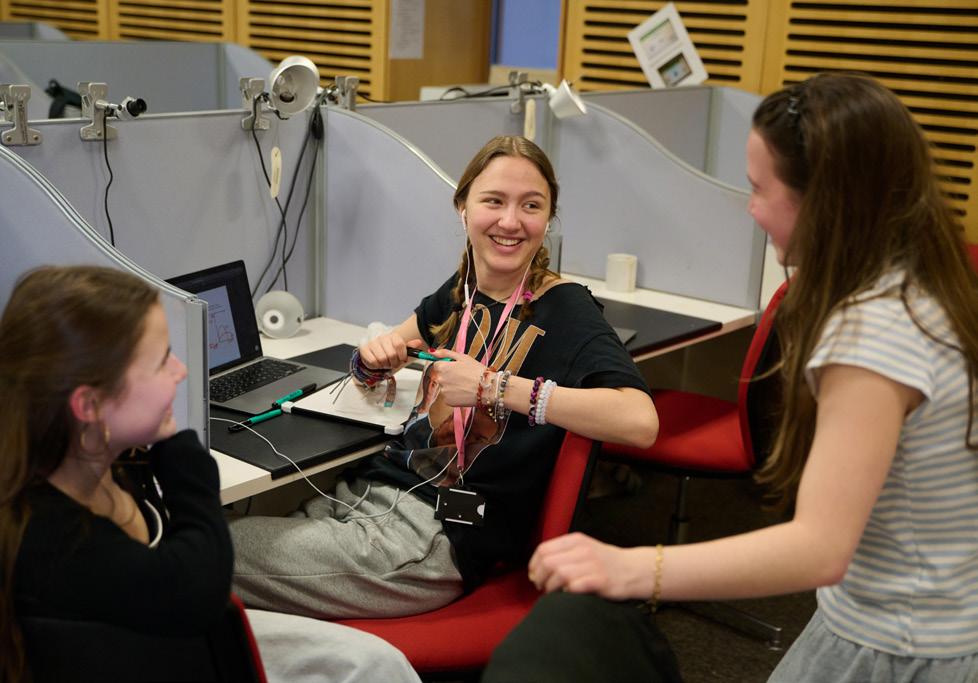
Geography is multidisciplinary. It enables students to develop a love of places, spaces, different cultures and to examine the links and connections of the world on a variety of spatial and temporal scales. Students will develop the ability to think critically, work collaboratively, formulate a logical argument and analyse large data sets.
French A Level explores the language, literature, film and culture of the Frenchspeaking world as well as the history and politics of France.
French for you?
Do you wish to become fluent in French? Do you already appreciate French culture and wish to learn more? Do you like grammar? If you’ve answered yes to at least two of these questions, then French is for you! Studying French A Level allows you to explore a wide range of topics, which will add to your understanding and interest in the language and culture of Francophone countries.
Course Content and Components
All Modern Languages follow similar units of the four skills of listening, reading, writing and speaking. The students also study films and works of literature which form the basis of the written examination. The oral examination is based on individual research on a subject of personal interest, relating to the countries where the language is spoken.
Recommended entry requirement
At least Grade 7 in GCSE or IGCSE French.
Post A Level Options
French is the official language of the United Nations, the European Union, UNESCO, NATO, the International Olympic Committee, the International Red Cross and international courts. Proficiency in French is essential for anyone considering a career in an international organisation. French is an analytical language that structures thought and develops critical thinking, also essential for any career.
Students should have an interest in the complexities of the world and studying topics ranging from coasts to disease dilemmas to natural hazard to human rights. Geography A Level is current and enables students to understand the complexities of the modern world in a critical manner.
Course Content and Components
Component 1 (22%): Physical Systems: Coastal Landscape Systems, Earth’s Life Support Systems and Geographical Skills Component 2 (22%): Human Interactions: Changing Spaces; Making Places, Global Connections, Migration and Human Rights, Geographical Skills Component 3 (36%): Geographical Debates: Disease Dilemmas, Hazardous Earth and Geographical Skills Component 4 (20%): Non-examination assessment: Independent Investigation
The course includes a day trip to Brick Lane and Spitalfields and a residential field trip to Flatford Mill to cover both human and physical Geography fieldwork.
Recommended entry requirement
At least Grade 7 in GCSE Geography and a curiosity to think synoptically and draw links between different topics.
Geographers are increasingly valued for their transferable skills, which makes Geography one of the most employable subjects post-university. An A Level in Geography complements a variety of subjects in university applications due to the multidisciplinary nature of the subject.
PEARSON SPECIFICATION CODE 9GN0
German A Level explores the language, literature, film and culture of the Germanspeaking world, as well as the history and politics of German-speaking countries. It is inter-disciplinary and one of the broadest subjects available.
Is German for you?
Do you love the logic of the German language?
Do you find cultural identity and the post-war division of Germany fascinating? Do you want to find out what young people in Germany think about music, their education system, the current political developments and more? If so, then German is for you! Students who are interested in learning more about society and culture in German-speaking countries will build on their GCSE language and grammar to reach a high standard of spoken and written German, at the same time gaining knowledge and understanding of Germany’s position in a global context.
Course Content and Components
All Modern Languages involve the study of a range of fascinating topics (current and historical) while practising the four skills of listening, reading, writing and speaking.
In addition, one film and one work of literature are studied in depth. The oral examination is based on individual research of a topic of the student’s choice, relating to the countries where the language is spoken.
Recommended entry requirement
At least Grade 7 in GCSE or IGCSE German.
Post A Level Options
German is the most widely spoken language in Europe. Yet it is a shortage skill in the UK and in huge demand. It is the second most commonly used scientific language and Germany is the third largest contributor to research and development. Having a German qualification improves employability with both German and foreign companies, particularly global organisations who often have several offices across Germany.
AQA SPECIFICATION CODE 7042
To paraphrase John H. Arnold, there are many reasons to study History. One should study History for enjoyment. There is pleasure in studying the past. History teaches us to think. Studying History necessitates taking oneself out of one’s present context and exploring alternate worlds. Studying History allows us to expand our understanding of ourselves. We learn how we have come about and are made aware of the possibility of doing things differently because History shows that there are many ways to view things. History arms us with the ability to act and think critically; it provides the tools to challenge dogma.
History is for students who enjoy investigating the events, leaders, peoples and beliefs of the past. If you’re intellectually curious, enjoy debate, research and writing, want to be equipped with transferable skills and want to study a discipline that empowers you across multiple fields - History is absolutely for you.
Course Content and Components
Component 1: (40%): Breadth Study: The Tudors: England, 1485-1603
Component 2: (40%): Depth Study: The Transformation of China 1936-1997 Component 3: (20%): Historical Investigation: a personal study based on c.100 year period of Civil Rights in the USA.
Recommended entry requirement
At least Grade 7 in GCSE History or, if one has not taken History at GCSE, at least a Grade 8 in English Language or English Literature.
Post A Level Options
History students pursue the most diverse disciplines and careers after their A Level. These include teaching and research, legal practice, public service, consulting, publishing, non-profit leadership, journalism and international affairs to name but a few.
PEARSON SPECIFICATION CODE 9HTO
The primarily factual investigation into the various forms of artistic creation across all cultures. The course focuses fundamentally on painting, sculpture and architecture though the syllabus incorporates aspects of contemporary art and the non-western artistic traditions.
It is for students who enjoy research and investigation, who like detail and complexity and can analyse factual information objectively. There are fascinating stories to be told but it is important to be able to digest fact and recall with accuracy. History of Art can complement and extend the contextual studies of students enrolled in Fine Art, but you do not need to have studied Art to excel in this written subject.
Students develop visual literacy and an understanding of chronology within the Western canon, from Classical Greece (500 BCE) to the present day.
Themes: ‘Nature’ and ‘Identities’ in art and architecture are broad explorations of developments in style and subject matter across time and place.
Periods: The study of two periods (Baroque and Modernism) in Year 13 allows students the opportunity to understand the artists, patrons and contextual factors of a specific time.
Recommended entry requirement
At least Grade 7 in humanities subjects such as English, History or Classics would be advisable.
An A Level in History of Art can lead to a degree in History of Art, Critical Theory and Curating. These courses are the foundation for those seeking a career in museums, art galleries and art journalism/criticism. History of Art also suits those who have an interest in pursuing careers in design, marketing, fashion or architecture.
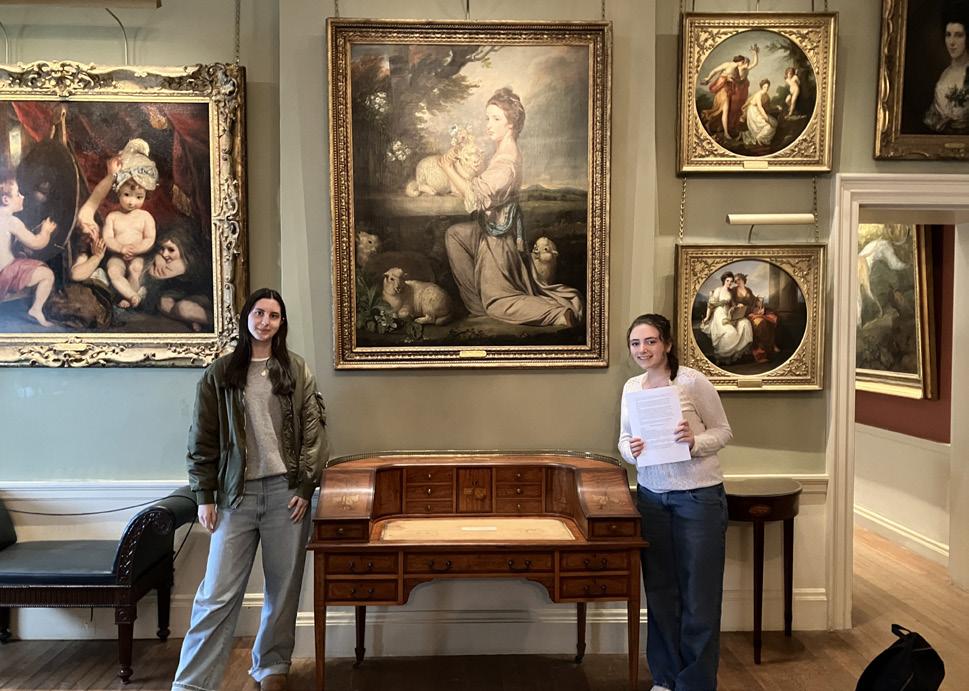
Latin is the study of the language and literature of the Romans. We read a variety of fascinating texts, encountering the rhetorical brilliance of Cicero’s defence of Caelius to the sublime poetry of Virgil. The A Level is balanced between the disciplines of translation and literary analysis.
Is Latin for you?
Students who enjoyed the blend of language and literature at GCSE will enjoy the A Level, which similarly combines translation and comprehension of unseen passages with the literary study of a range of authors whose work has had a profound influence on Western culture.
Course Content and Components
Component 1 (33%): Unseen Translation and Comprehension (prose and verse)
Component 2 (17%): Prose Comprehension or Composition
Component 3 (25%): Prose Literature: Nepos’ ‘Life of Hannibal’ and Tacitus’ ‘Annals’
Component 4 (25%): Verse Literature: Virgil’s ‘Aeneid’
Recommended entry requirement
At least Grade 7 in Latin GCSE.
Post A Level Options
The study of a classical language at A Level can lead on to degrees in English, Modern Foreign Languages, History and Politics as well as Classics. We often have students who combine Latin with Science A Levels before going on to study Medicine, Natural Sciences or Veterinary Medicine at university.

At the heart of Mathematics lies problem solving. Mathematicians have an appetite for a challenge, a desire to wrestle with problems for which the solution is not immediately obvious and show tenacity, perseverance and imagination. Mathematics also teaches you to be logical, methodical and meticulous, skills that are relevant to and complement a myriad of other subjects.
Is Mathematics for you?
If you love tackling problems, if you have an appetite for a challenge, if you are tenacious, if you see the beauty in geometry and you appreciate the elegance of an algebraic proof, it is for you. It is also for you if you enjoyed your GCSE studies and are eager to learn more. A strong work ethic and the ability to study independently are essential.
Course Content and Components
Papers 1 and 2: Pure Mathematics (proof, algebra, functions, coordinate geometry in the x, y plane, sequences and series, trigonometry, exponentials and logarithms, differentiation, integration, numerical methods and vectors).
Paper 3: Statistics & Mechanics.
Students can use a calculator in all of the examination papers. We recommend using a Graphics Calculator which helps with visualising solutions.
Recommended entry requirement
At least a Grade 8 in GCSE or IGCSE Mathematics.
Post A Level Options
Mathematics A Level is highly respected and relevant, not just to the obvious areas such as Engineering, Computing and Physics but the statistics element of the course is relevant to Biological Sciences, Medicine, Psychology and Geography. The majority of degree courses in Mathematics are combined with other disciplines such as Philosophy or Computer Science.
Further Mathematics can only be studied alongside Mathematics. It extends the skills and concepts studied in the single A Level as well as introducing new ones. Two parts of the course are compulsory Pure Mathematics. For the remaining two parts there is some flexibility depending on the strengths of the current group (this year they did Further Pure Maths and Further Statistics). This will be decided at the end of Year 12. Also, if students are finding the full Further Maths course too demanding they can stop at AS Further Maths in November when that syllabus will be completed, leaving the rest of the class to complete the full A Level.
Is Further Mathematics for you?
Studying Further Mathematics is for students who are passionate about mathematics and whose favourite thing is to sit down with a challenging problem. Students require a very strong independent work ethic and regard work set as the minimum.
Course Content and Components
Two compulsory papers of Core Pure Mathematics and then two selected options from Further Pure Mathematics, Further Statistics, Further Mechanics and Decision Mathematics modules. Each paper is equally weighted.
Recommended entry requirement
Grade 9 in GCSE or IGCSE Mathematics.
Post A Level Options
The world is your oyster! Further Mathematics makes a statement about your academic capability and your intellect. Previous Further Mathematicians have gone on to read a wide variety of subjects including Mathematics, Law, Medicine, Architecture, Physics, Economics and Natural Sciences.
EDUQAS SPECIFICATION CODE A660P
A Level Music at Channing is an exciting and challenging subject. Students are encouraged to explore a variety of genres, from classical, musical theatre and contemporary to jazz, pop and film. There are numerous opportunities for students to perform either on their own or in collaboration with others.
For able music lovers and practitioners, Music provides an ideal counterpart to either an arts or science-based Sixth Form curriculum, developing skills of analytical thinking and close textual study, as well as in the creation and performance of music. It offers a sound intellectual training, as well as providing a firm foundation for music courses in further education.
Course Content and Components
Component 1: Performing
Solo performance or in an ensemble in a recital setting for a minimum of 10 minutes. The performance will be in front of a visiting examiner from Eduqas. Grade VII level is expected.
Component 2: Composing
Create two pieces totalling 5 minutes. One is a free composition. The second will be a stylistic composition to a brief set by Eduqas.
Component 3: Appraising. A written paper with aural questions.
Recommended entry requirement
At least Grade 7 in GCSE Music or Grade VI on any instrument and a merit in Grade V theory.
Studying Music helps you to develop skills and qualities that future employers will welcome, such as creativity, problem solving, being a selfstarter, presentation skills, self-discipline, skill development and the ability to work with others. Music complements a range of commonly required A Level subjects such as Maths, Physics, English and Biology.
AQA SPECIFICATION CODE 7172
Philosophy is the study of the big questions in life and examines the rich treasure trove of answers to questions such as: what is the nature and limitation of our knowledge? How do we decide what is right? Does God exist? What is human consciousness?
Is Philosophy for you?
Philosophy A Level will appeal if you enjoy thinking deeply, reading critically and expressing your ideas clearly in essays and discussion.
Philosophy is a subject with a clear method. It trains you to think carefully and critically, and then to write (and speak) clearly. These skills can be applied to every area of study and in every profession: studying Philosophy is the ideal preparation for work and life!
Your opinions will be challenged in lively classroom discussion as you are led through the maze of dilemmas. This subject encourages you to think for yourself.
Course Content and Components
Component 1 Year 12:
Section A – Epistemology: What can we know? Section B – Moral Philosophy: How do we make moral decisions?
Component 2 Year 13:
Section A – Metaphysics of God: Can the existence of God be proved?
Section B – Metaphysics of Mind: Are my mind and body separate?
Assessment: Consist of two written exams, with no choice of question: Paper 1 – Epistemology and moral philosophy (50%). Paper 2 – The Metaphysics of God and the Mind (50%)
Recommended entry requirement
At least a Grade 8 in English Language and a Grade 8 in a Humanities GCSE subject, and a genuine interest in constructing essays containing justified arguments evaluating complex abstract concepts.
Post A Level Options
Thinking is a vocational skill and philosophy graduates are extremely marketable in a wide variety of fields such as Law, Journalism and public services.
SPECIFICATION CODE 9PHO
Why does a hot-air balloon rise? Why did the Millennium Bridge wobble so much that it had to be closed? Why does warm honey flow much more easily than cold honey?
This course is for students who enjoyed Physics at GCSE and want to develop their understanding of the subject to a much greater depth.
Is Physics for you?
Physics helps to unlock the mysteries of the Universe and is one of the most powerful enablers of innovation and discovery. Physicists collaborate with other researchers and apply their knowledge and technical skills in response to the major challenges of our time.
Course Content and Components
Paper 1: (30%). Content: Mechanics, Electric Circuits, Electric and Magnetic Fields, Nuclear and Particle Physics.
Paper 2: (30%). Content: Materials, Waves and Particle Nature of Light, Thermodynamics, Space, Nuclear Radiation, Gravitational Fields and Oscillations.
Paper 3: (40%). Content: General and Practical Principles in Physics.
Recommended entry requirement
At least Grade 7 in GCSE or IGCSE Physics or 7/7 Double Award Science.
Post A Level Options
A Physics degree could lead to a career as a mechanical engineer, a computer games designer, a scientific journalist, an architect, a particle physicist, a weather forecaster or a sound engineer, among others.

SPECIFICATION CODE 9PL0
Politics is the study of governments – of their roles, responsibilities and functions. It encompasses the relationship between the governed and those in power, considering in particular the role of UK and American governments. It also covers ideologies, how they have shaped political systems and how they inform and educate the electorate.
Is Politics for you?
The most successful Politics A Level students are those who relish reading about current affairs, international relations and governments throughout the world. They are inquisitive and curious, enjoy debating and writing argumentative and cogent essays that tackle the key debates shaping British and American politics.
Course and Components
Political Participation: Democracy and participation, political parties, electoral systems, voting behaviour and the media.
Core Political Ideas: Conservatism, liberalism, socialism.
UK Government: The constitution, parliament, Prime Minister and executive Optional Political Ideas: One idea from: anarchism, ecologism, feminism, multiculturalism, nationalism, The US Constitution and federalism, US congress, US presidency, US Supreme Court and civil rights, democracy and participation.
Recommended entry requirement
At least Grade 7 in GCSE English Literature.
Post A Level Options
An A Level in Politics can lead to a wide range of degree subjects beyond merely studying Politics! Many of our students have gone on to study Law, International Relations and Journalism, as well as joint honours in History.
Psychology examines an individual’s experiences, behaviour and motivation and leads to a deeper understanding of the self and others. Research findings are at the heart of this dynamic science subject and will be critically analysed in order to support or evaluate theories. From practical research and data-handling to clear and thoughtful essay writing, the course is broad in skills as well as content. Most of what we have learned about brain functioning has happened within your lifetime so never has there been a more exciting time to study Psychology.
Is Psychology for you?
A fascination with the mind and behaviour are essential but crucially you need to be prepared to embrace scientific thinking and learn a wide range of research evidence accurately. For students looking to try something new and seeking an A Level that is challenging and stimulating, Psychology is a perfect choice.
Course Content and Components
Paper 1 (33.3%): Social Influence, Memory, Attachment, and Psychopathology.
Paper 2 (33.3%): Approaches in Psychology, Biopsychology, and Research Methods.
Paper 3 (33.3%): Issues and Debates in Psychology, Relationships, Schizophrenia, Aggression, Addiction.
Recommended entry requirement
Two Grade 7s in IGCSE or GCSE Sciences, Grade 7 in IGCSE or GCSE English Language.
Post A Level Options
Clinical psychology careers include educational, occupational and sports psychologists. Psychology is also useful for any job that requires interaction or understanding of human behaviour and development. Many roles in marketing, HR, business management and recruitment utilise skills and knowledge covered by A Level Psychology.
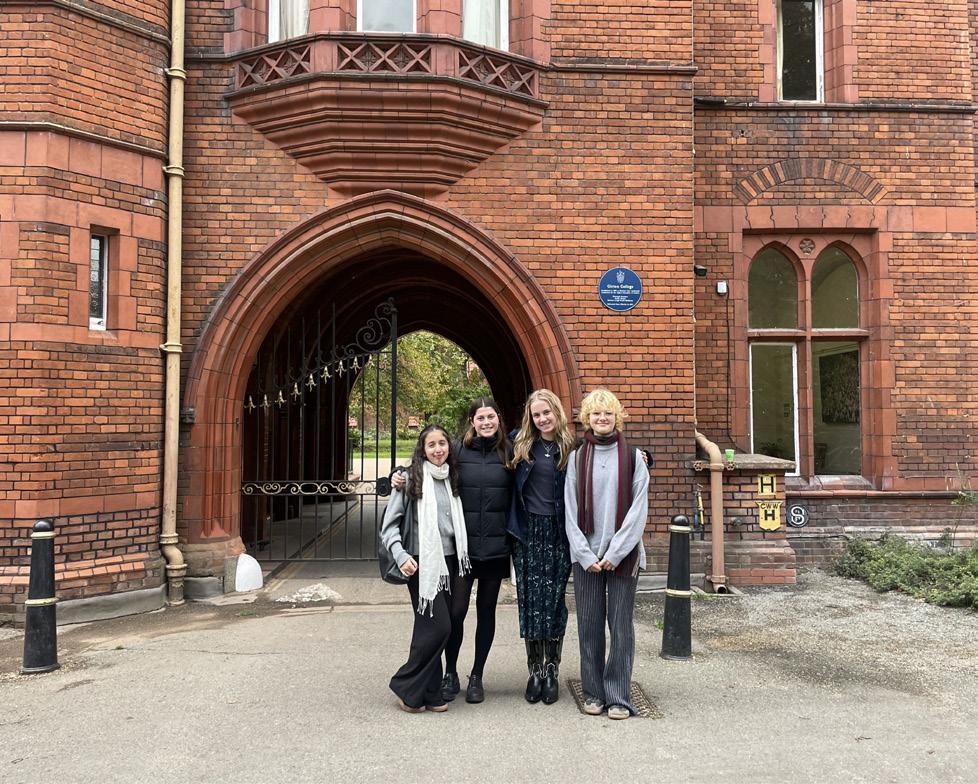
SPECIFICATION CODE 9SP0
Spanish A Level explores the language, literature, film and culture of the Spanishspeaking world, as well as the history and politics of Spain.
Is Spanish for you?
Spanish A Level is a natural progression for students who enjoyed the GCSE course and show aptitude as a linguist. They should have an interest in the history, culture and literature of Hispanic countries, as well as an appreciation of human and cultural differences. Students should be willing to spend time in a country where Spanish is spoken.
Course Content and Components
All Modern Languages follow similar units of the four skills of listening, reading, writing and speaking.
The students also study films and works of literature, which form the basis of the written examination.
The oral examination is based on individual research on a subject of personal interest, relating to the country where the language is spoken.
Recommended entry requirement
At least Grade 7 in GCSE or IGCSE Spanish.
Post A Level Options
Spanish is widely spoken throughout the world, so a qualification in Spanish is a great asset. In the multinational, connected world that we now live in, demand for language skills is increasing all the time. Linguists are often recruited for roles in account management, finance, retail and social media.

The Extended Project Qualification gives students the opportunity to devise and carry out an independent research project alongside their A Levels. The end product may be a 5,000-word written report or a shorter report accompanying an ‘artefact’ - for example, a working performance model, film, or piece of software. Students might choose a topic that relates to their proposed university course, career or interests outside of school.
The EPQ provides an unparalleled opportunity for students to reach beyond the A Level syllabus and prepare for university. Pupils typically embrace the freedom to work more independently and pursue an ambitious project that fascinates them. EPQ develops intellectual curiosity, rigour and resilience, as well as research, communication and project management skills. It is a demanding but hugely rewarding exercise that is valued by universities, employers and, most importantly, students themselves.
Students are taught a range of skills, including research methods, evaluating sources, citation and referencing, time management, constructing a report, and presentation skills. Students also have regular meetings with a supervisor who guides them through the process of planning, researching, and developing their project. Students independently research and execute the project, keep a research log, and prepare and deliver a presentation.
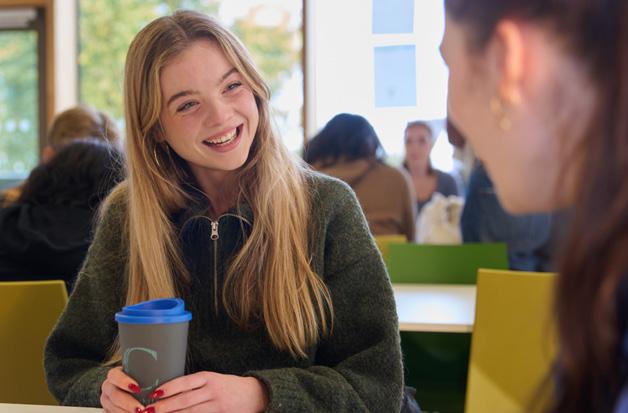
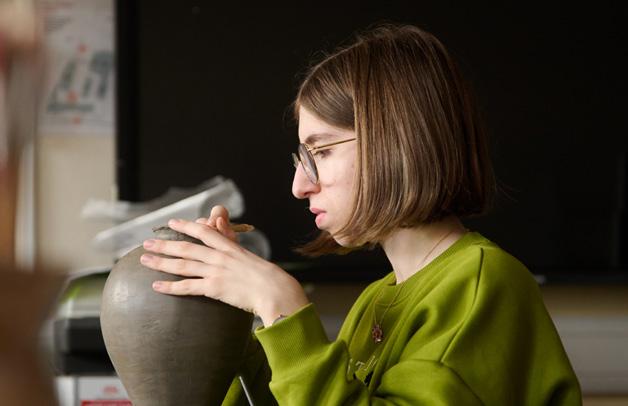
All Year 12 students start the EPQ in September and complete a programme of taught skills during the first part of the Autumn term in Enrichment lessons. They work with a supervisor and write a proposal for a project, and it is left to the individual student to decide whether they want to complete a full EPQ after this. Those who continue with the EPQ will complete their research and write up their projects during the remainder of the autumn and spring terms. Students who don’t continue with the EPQ convert their proposal into a shorter Channing Project.
Universities recognise that completing an EPQ is a considerable achievement and excellent preparation for undergraduate work. Some universities even give reduced offers to those candidates who successfully complete an EPQ. Potential Oxbridge candidates are strongly advised to complete the EPQ.
Overall, EPQ is a unique opportunity to develop valuable skills, work more independently and lay excellent foundations for the future.
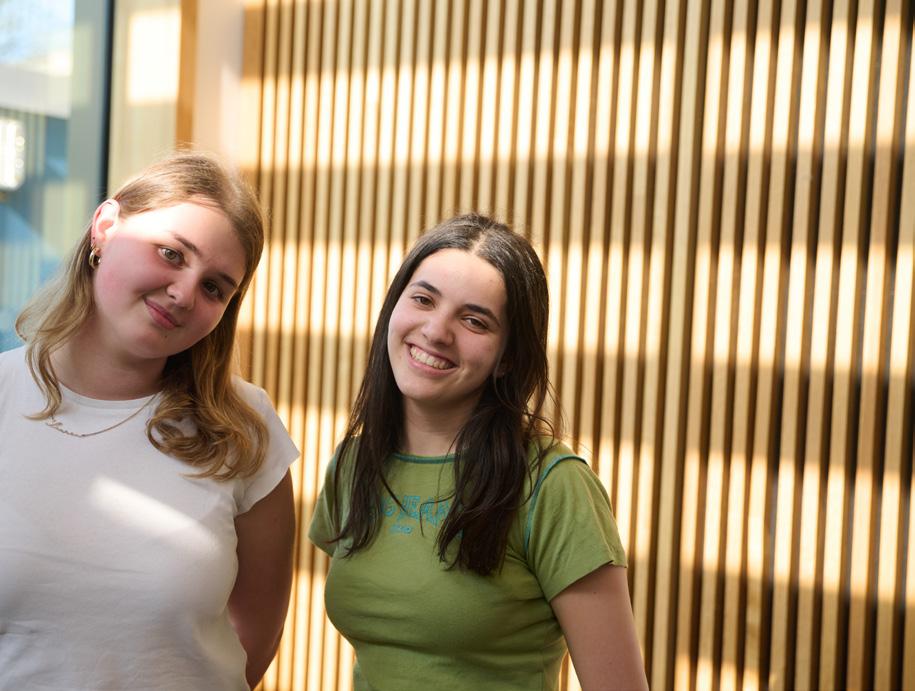
Now, more than ever, young people need to be fully equipped with not only the necessary academic qualifications, but also the effective life skills to succeed in the workplace and the world at large.
In Channing Sixth Form we prepare our students for the next stage of their journey. Now, more than ever, young people need to be fully equipped with not only the necessary academic qualifications, but also the effective life skills to succeed in the workplace and the world at large.
Our exceptional pastoral care, wide-ranging enrichment and extra-curricular activities and trips, community service and volunteering links, alongside leadership and team-building opportunities, are just as important to our students’ development as the A Level subjects being studied.
Whether it be navigating an expedition with their team on the Duke of Edinburgh’s Gold Award, mentoring or being a buddy to younger students, learning their first salsa steps on a Sixth Form trip to Cuba, or debating and engaging with young people from across Europe through the European Parliament Ambassador School Programme (EPAS), the opportunities for personal development are wide-ranging, plentiful, fulfilling, and will ensure that, when the time comes, our Sixth Formers are able to take their next steps confidently into the world beyond Channing.
Providing outstanding pastoral care for our students is a priority for us at Channing. The Sixth Form years can be a challenging, and sometimes overwhelming time, as students navigate their path from the school years into young adulthood and beyond.
The Sixth Form team understands that there will be highs, lows and much in between, and is on-hand in the Sixth Form Centre to get to know, support, and guide students over the course of the two years. Sixth Formers see their tutor daily, and have regular one-to-one meetings with them, as well as meeting with the Director of Sixth Form, and the two Assistant Directors of Sixth Form. This allows us to get to know each student individually really well and, combined with our bespoke PSHE programme and talks from specialists on important aspects of wellbeing, forms the bedrock of our proactive, reflective and effective pastoral care at Channing Sixth Form.
Our dedicated and experienced team of Tutors and Co-Tutors works alongside our students, guiding them through these two important years, and helping them to keep a healthy balance between commitments, responsibilities, and studies, as well as writing their tutee’s UCAS reference. Each Sixth Form Tutor meets
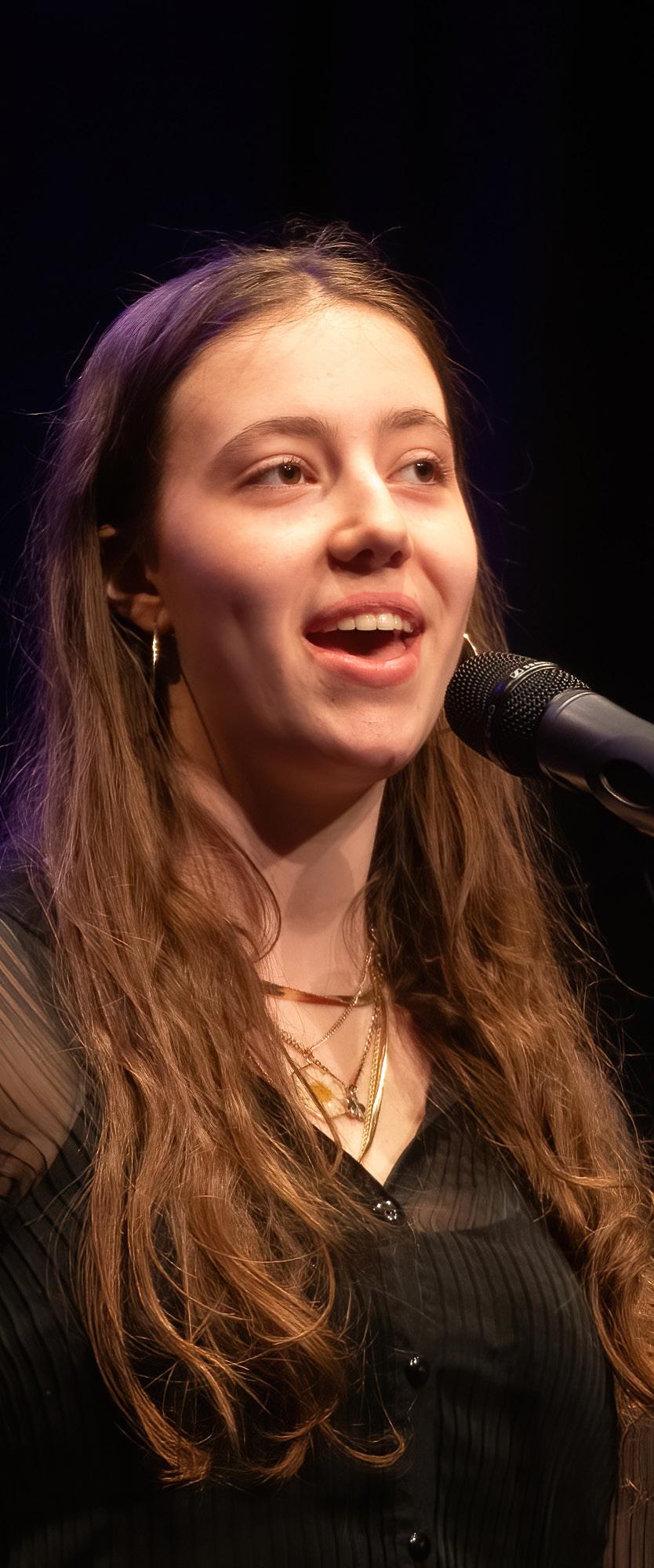
with their tutees daily, allowing them to get to know their students well, and enabling them to give personalised encouragement and support on a regular basis.
Our Sixth Form tutor groups are a conscious mix of Year 12 and Year 13 students, something that we find our students really appreciate and enjoy, facilitating the students to make connections across year groups and to learn from and give support to each other through the weeks and months.
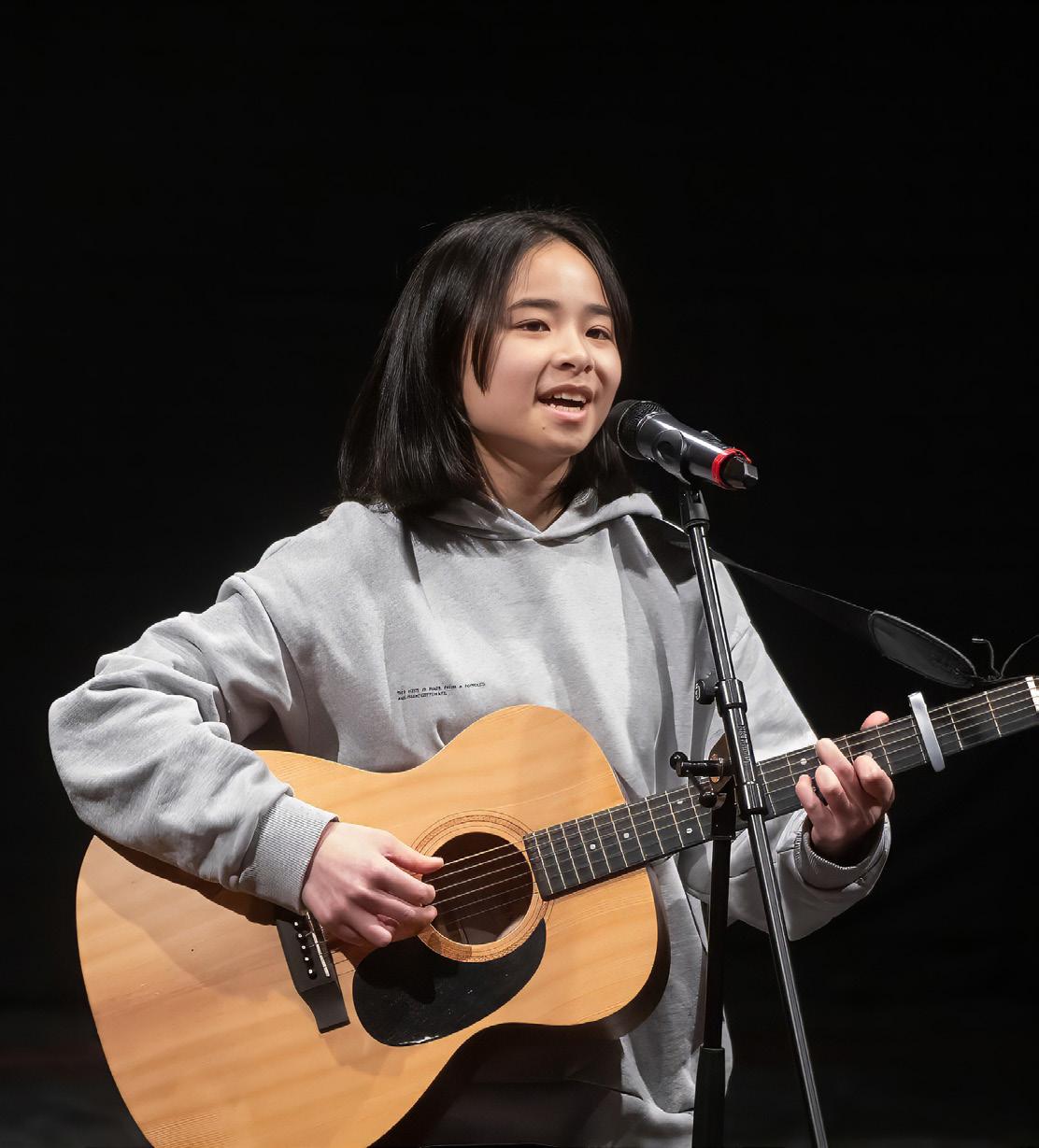
PSHE sessions are weekly and are dynamic, tailored to the needs of our students in Channing Sixth Form as they face the complexities of young adulthood. The PSHE programme is built around three key themes – Health and Wellbeing, Relationships, and The Wider World – and seeks both to give our Sixth Formers the opportunity to explore a wide variety of issues that are critical to their mental, emotional and physical health, as well as to equip them with the life skills that will stand them in good stead as they consider life beyond Channing.
PSHE sessions are delivered in year groups, as a whole Sixth Form, and in form groups, including periodic oneto-one sessions with the tutor.
The array of extra-curricular clubs and societies on offer in the Sixth Form is quite staggering. From Fem. Soc. to History Girls, many are run by and/or founded by Sixth Formers themselves! Additionally, we are proud to be part of the European Parliament Ambassador Schools Programme (EPAS), offering our students the opportunity to experience structured debates on issues that affect young people and the EU.
Furthermore, many students successfully undertake the popular and highly-regarded Duke of Edinburgh Gold Award, developing their resilience, confidence, problemsolving and team-working skills, whilst also making friends and having lots of fun! Each year, we also enter teams in the Young Enterprise Scheme, offering our Sixth Formers the chance to experience the excitement of competition by running their own businesses as entrepreneurs.
Our two Year 12 Young Enterprise teams shone at the North London Showcase (hosted by White & Case LLP), sweeping the board with awards including Best Company, Best Company Runner-Up, the Marketing Award, Best Presentation, and the Team Journey Award. Most recently, they progressed to the Central, North & West Final at Samsung KX, where Charms & Co continued their success by securing another Marketing Award.
Music at Channing is full of energy, creativity, and opportunity – especially for Sixth Formers. Whether you’re into classical, jazz, pop or musical theatre, there’s something for everyone. Join choirs (including Chacapella, run by Sixth Formers), orchestras, chamber groups, jazz ensembles, rock bands or musical theatre projects.
Weekly Friday Lunchtime Concerts give you the chance to perform regularly, and our exciting series of evening events showcases a wide range of musical styles. Whether you’re looking to perform, lead, or explore new genres, Channing offers a welcoming and inspiring musical community to make your Sixth Form years unforgettable.
The opportunities for developing leadership skills and experience, both individually and as part of a team, in Channing Sixth Form are plentiful.
From the start of Year 12 every student takes on a position of leadership relating to an aspect of school life, for example, as SEN Ambassador, Digital Marketing Leader or Form Senior, with many embracing the role of mentor for younger students in a particular subject area as a Subject Leader.
Whether it is as a Head Girl, a Year or House Officer, a Year 12 leader, and/or by participating in House competitions and debates, leading assemblies and PSHE lessons, or by running clubs and societies for younger students, we are immensely proud of the way our Sixth Formers positively contribute to so many aspects of the wider life of the school.
Sixth Form students will take part in one compulsory physical activity session each week. A wide range of options will be available, including fitness, yoga, netball, football, tennis, cricket, run club, and rock climbing, among other sports.
Studies have linked regular exercise with stress relief, improved self-confidence, heightened brain performance, boosts in memory, creativity and the ability to learn new things.
Additionally, the fitness suite is available to Sixth Form students whenever it is not in use. There is also a comprehensive extra-curricular programme for students and competitive fixtures in sports such as football and netball, which students are encouraged to take part in. With so many opportunities available, there’s no excuse not to get active!
Each week in Channing Sixth Form a double period is dedicated to Enrichment. These sessions aim to extend learning beyond the curriculum and broaden students’ experience by exploring new questions, skills, and activities.
Our carefully curated schedule includes: short courses which the students choose themselves, and has in the past ranged from an ‘Introduction to DJing’, ‘Electronics and Robotics’, and ‘Interior Design’, to ‘Drama Improvisation’, ‘Mandarin and Chinese Culture’, and ‘Historical Women and Films’; a lecture series from experts in their respective fields, with titles such as ‘Sport and More in the GDR’, ‘The Rise of the Dictators 2023’; a preparation for university carousel; and team-building, leadership and study skills workshops.
We are always impressed with the commitment and time already spent by many of our students in voluntary work in their own communities. Our voluntary work programme has links with several of our local community organisations who have built up close links with the school.
Our aim is for every student in Year 12 to be engaged in a community service project, either organised by themselves or through our links.
Currently we have links with Channing Junior School, Hill Homes, St James’ Church and a thriving partnership with Highgate Newtown Community Partners (HNCP). The Education Plus Alliance, which incorporates HNCP, Channing School, Brookfield Primary School, St. Aloysius’ College and La Sainte Union focuses on providing opportunities for students to engage in academic enrichment and cultural capital. Through the Education Plus programme and others, students will have the opportunity to help a diverse local community. The skills, experience and sense of belonging gained are often the most valuable, rewarding and satisfying part of the week for students and excellent preparation for the future.
The UCAS process at Channing starts in Year 12 with UCAS presentations and the annual ‘Springboard To The Future’ Fair and Presentation day where Admissions Tutors, expert speakers and organisations come to the school so Year 12s can learn first-hand about universities and other options available to them. The mixed Year 12 and 13 Forms provides the opportunity for Year 12s to experience the university applications process closely and witness the preparation and decision-making.
As far as the Personal Statement is concerned, we will provide the tools to help students craft a compelling and relevant statement. In Year 13, with the support and guidance of Tutors and Heads of Department, and the Head of Careers & HE, students will be ready to submit their application.
If your university sights have been set on Oxford or Cambridge, or a special application (including Medicine, Veterinary Medicine or Dentistry), there will be expert advice and support from specialist mentor teams of teachers, alumnae, parents and other expert advisors, in order to provide you with the best possible chance of securing an interview and ultimately, the offer of a place.
More students are now considering studying in the USA and Canada. The breadth of subjects, alongside the flexibility in the Liberal Arts programme, makes studying overseas very attractive. Specialist presentations, workshops and guidance on essays as well as applications are available at Channing with students going on to study at a range of schools and colleges across North America.
Degree apprenticeships, Art foundation courses as well as GAP years are also very popular and students are provided support in those applications or planning for a year away.

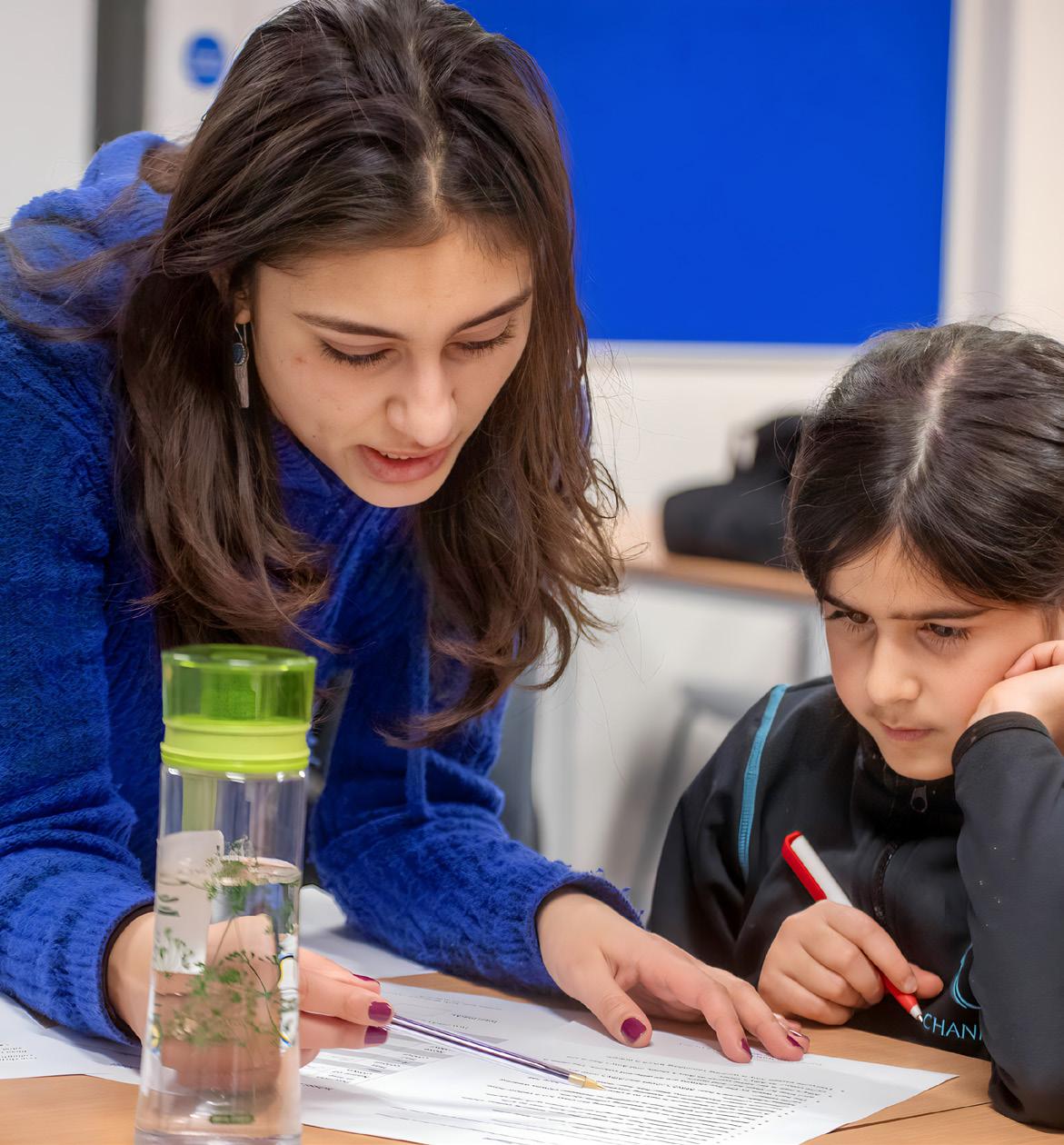
Digital technology is an integral part of the learning experience for our Sixth Form students. At Channing, we foster intelligent and creative users of digital technology who are ready for what comes next, whatever path they choose to follow. We operate a Bring Your Own Device policy for Sixth Form - with students using a range of devices when learning in lessons and as part of their independent study - and also have a bank of laptops available for students to borrow. Students become confident digital workers and are comfortable responding to digital feedback such as comments and voice notes on Google Classroom, which are now a regular part of the feedback process between teachers and students.
All students sign an annual Digital Technology Acceptable Use Agreement to ensure they understand the responsibilities they bear when using their digital devices, and we have an extensive Online Safety programme that combines assemblies, PSHE lessons, outside speakers and webinars, and free and unlimited access to the National Online Safety website and app for students and parents.
We are incredibly proud of our approach to digital technology and online safety. In our latest ISI Report, we were delighted that inspectors noted the ways our students “make highly competent use of ICT, employing a range of programmes to enhance and extend their learning in all curriculum areas” and that they “become confident in understanding the importance of respectful online communication.”
To support all aspirations, the Sixth Form Careers provision has been substantially expanded over the last five years.
Our Head of Careers and Higher Education, and our Careers Coordinator, organise a comprehensive programme of preparation. This begins with an interview and assessment centre skills workshop and includes an individual careers interview with an external advisor for every student. The annual Careers Convention and a programme of work insight visits are other key parts of the programme. Students are advised to complete work shadowing placements to gather information about various career roles and fields. The Careers Department works in close association with the Channing community to support a work experience programme which offers Sixth Formers the opportunity to apply for a placement with a host from the Channing community as well as supporting students with applications for competitive internship programmes.
We want our students to create links and relationships that will guide and support them through their next decade, their first job, their first promotion and their first tax return! We then encourage and welcome our former students to come back to us as mentors to support other Channing students.
Channing takes pride in its alumnae community. Our alumnae are diverse in their career paths and geographical locations, many of them making significant contributions on the national and global stage.
Irrespective of when they leave Channing, each leaver becomes a member of the Channing Alumnae Association. They join the community through our Channing Connect portal, where they receive will receive an electronic copy of the Channing Alumnae Newsletter, as well as invitations to exclusive alumnae events, concerts, reunions, performances and talks.
Our extensive network of alumnae professionals assists current students to access professional advice, guidance and work experience. In conjunction with the Careers Department, there are a number of interactive talks, presentations by guest speakers and seminars held throughout the academic year. These range from specific career talks, information about undergraduate life, in-person networking events through to presentations from women who are working in every sector – from Art to Zoology. The specific interests of every student are taken into account so that they can explore Automotive Engineering or Criminology with experienced professionals to inform their important decisions about the future and two specific Networking events are organised so that students can develop this important skill.
We are continually growing this already impressive network to aid and inspire Channing alumnae in their career development. Each and every alumna has something unique to offer, whether it be through a seat on the Alumnae & Development Board or offering work experience to a newly qualified professional to strengthen their job application.
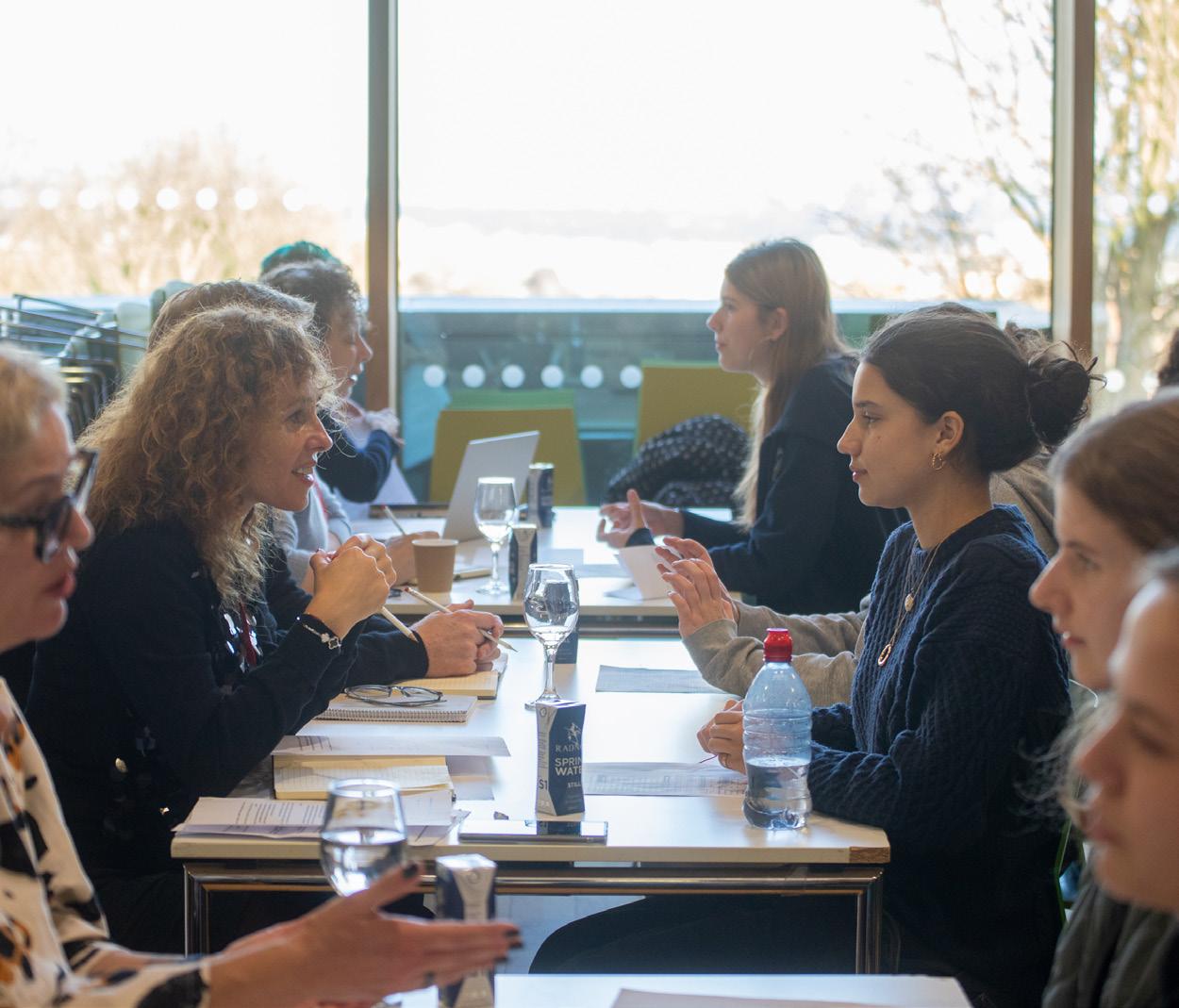
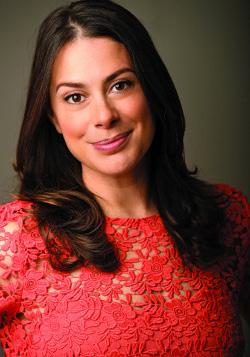
Katie Nicholl, Journalist, Author & Broadcaster
Having had so much fun at Channing since the age of 11, I was very keen to stay on for the Sixth Form. I remember having our very own Sixth Form building, our own kitchen, and so much freedom – it was wonderful! I fondly recall my English lessons with the incredible Mrs. Roots and her happiness when I achieved an A at A Level, which meant I could go on to study English and American Literature at the University of East Anglia, where I also secured a place on the prestigious Creative Writing course.
In addition to studying Geography and Spanish, I enjoyed all the extracurricular activities on offer at Channing, including tennis, the debating society, and contributing to the Channing magazine. I had aspired to be a journalist since the age of 11 and was thrilled to secure a work experience placement at The Times through a Channing connection. It provided me with that all-important first step on the ladder. I have enjoyed climbing it ever since, always maintaining the ‘can-do’ Channing attitude.

There was no question for me as to whether I would stay at Channing – I loved the school from age 11, and wouldn’t have wanted to do my A Levels anywhere else. My Sixth Form experience was cut short when lockdown started in March of Year 12, but even the few months of freedom and chocolate toasts before pandemic chaos set in were a wonderful and memorable experience. Despite all of the upheaval, I was supported through A Levels and an Oxford application, and was delighted to receive 3 A*s and go to Trinity College, Oxford to study Spanish.
I was always so struck by the Channing admissions policy that sought out girls who were clever and nice: the resulting culture of kindness at Channing acted as a launchpad for us all. As I prepare to begin a Masters in Modern and Contemporary Art: History, Curation and Criticism at Edinburgh – something of a pivot after a Modern Languages undergraduate degree – and continue to work in writing and directing theatre, I feel immensely grateful for a school which took genuine interest in the individuality of each student, and which celebrated and encouraged the pursuit of enjoyment and excitement.
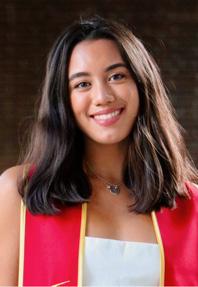
Maddy Hookway, Development Coordinator and Producer
My older sister stayed at Channing for Sixth Form and after seeing how much fun she had and confidence she gained, my twin and I were determined to stay as well. Sixth Form at Channing was a transformative experience; our year group grew so close and experiencing a new building, new subjects, new freedom together, is 100% the reason we still meet up (seriously all 80 of us!) for drinks at The Flask in Highgate every year without fail.
I studied French, Drama and Geography for A Level and went on to study Screenwriting, Acting and Cinematic Arts at the University of Southern California in Los Angeles, where I still live and work today. The film club I established with fellow alum and producing partner, Saskia Steinberg, while we were in Sixth Form was a key catalyst for studying film at uni and my subsequent career in the industry.
The rigorous education I got in Sixth Form meant that I was a year ahead of my American peers at university, giving me more time to intern for Robert Downey Jr.’s production company and Reese Witherspoon’s production company. I now work for Pascal Pictures, for the legendary producer Amy Pascal and have been working on the upcoming Narnia and Spiderman movies.

During my school days, Channing enabled me to take part in numerous work experiences, at companies ranging from TotalEnergies to Rothschild & Co. This exposure was critical to my ability to submit strong applications for Spring Weeks during my first year at university, resulting in offers from nine top financial firms, including JP Morgan Chase, Evercore, Glencore and BNP Paribas.
During these work experiences, the soft skills taught at Channing—as well as my own drive, passion and knowledge of financial markets—helped me to successfully convert several of these opportunities into employment, ultimately choosing the Sales pathway within Global Markets at JP Morgan Chase in London.
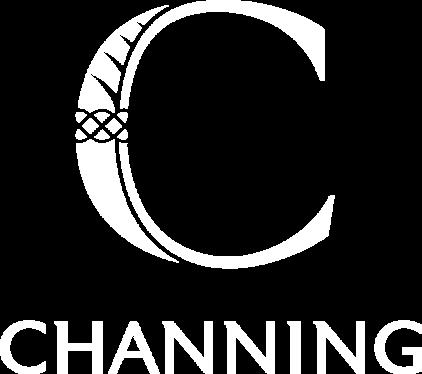
Please note that the most current versions of these tables are readily accessible on our website.

UNIVERSITY
Arts University Bournemouth
Durham University
Hartpury University
SUBJECT
Film Production
Classical Civilisation
Sports Business Management
Keele University Medicine
King's College London, University of London Geography
Loughborough University
Manchester Metropolitan University
St George's (City St George's, University of London)
Liberal Arts (with Placement Year)
Speech and Language Therapy
Paramedic Science
The New School Parsons Paris Fashion Design
The University of Edinburgh
UCL (University College London)
University of Bath
University of Birmingham
University of Bristol
University of Cambridge
Biomedical Sciences (2)
• History of Art • Interdisciplinary Futures • Mathematics • Neuroscience • Philosophy (2) • Social Anthropology and Politics • Social Policy and Economics
Biomedical Sciences • Chemistry • Philosophy and Computer Science
Economics with professional placement or study abroad • Psychology with work placement
Dentistry • History and Politics • International Relations with Spanish • Medicine • Sport, Exercise and Health Sciences
Economics and Management • Geography • History of Art • History with Innovation • Liberal Arts With Study Abroad • Modern Languages • Music • Physics • Social Policy and Politics(2)
English • Human, Social, and Political Sciences
University of Exeter History • Psychology
University of Glasgow
University of Leeds
University of Liverpool
University of Manchester
University of Oxford
University of She eld
Common Law/Philosophy • Politics (SocSci) • Psychology
Economics • Economics and History • Geography • International Relations • Medicine(2) • Neuroscience • Politics • Psychology (3)
Biological Sciences
Computer Science • History and Spanish (2) • Modern History with Economics • Politics and International Relations • Politics and Modern History (2) • Sociology
Geography
Mechanical Engineering
University of Southampton Medicine
University of St Andrews
University of the Arts London
University of Warwick
University of York
Management • Mathematics
Fine Art: Painting
Design for Sustainable Innovation • Liberal Arts
Accounting and Finance • History • Spanish and Linguistics (with a year abroad)
5 students have taken a Gap Year.
We offer a seamless transition for our current pupils from Year 11 to Year 12. There are additional tasks if a Year 11 Channing student wants to apply for a scholarship; please see details opposite.
We expect our students to gain at least a GCSE Grade 7 in those subjects they wish to study at A Level, or the other minimum requirements stated in this prospectus. Current Year 11 students are supported by their tutors, Head of Year 11 and Sixth Form Team in their transition to Sixth Form.
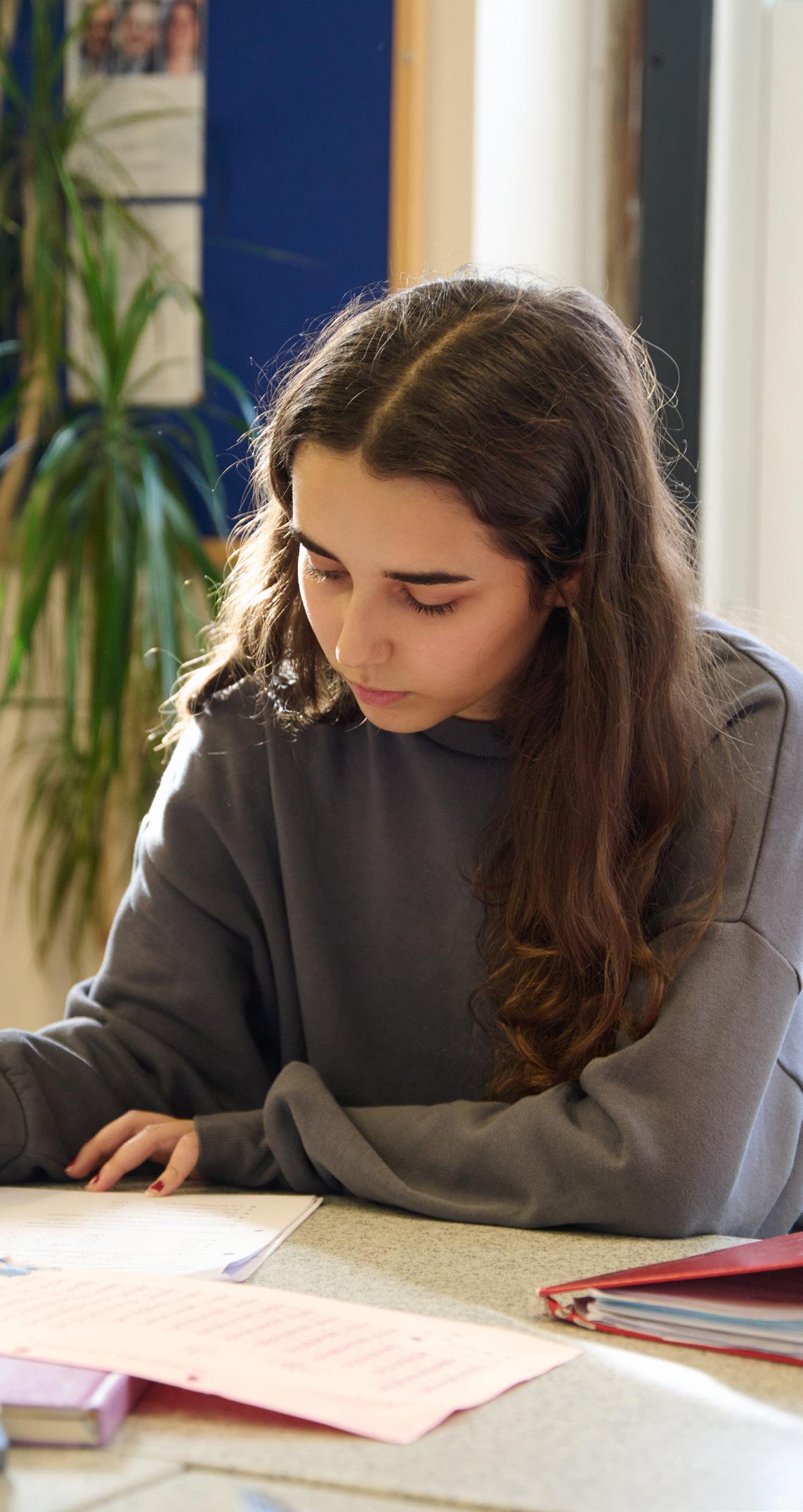
Ideally, you will be on course to achieve 10 GCSEs, with the majority at grades 7 to 9. These must include English and Mathematics at Grade 6 or above AND at least a Grade 7 in those subjects you wish to study at A Level or the other minimum requirements stated in this prospectus
Apply online at www.channing.co.uk before the application deadline of 10 October 2025 for entry in September 2026. The application includes telling us your GCSE subjects, your preferred A Level choices as well as a personal statement. After submitting your application, you will be invited to attend an interview with the Headmistress, Mrs Hughes, and the acting Director of Sixth Form, Mr Raine. There are additional tasks if you wish to apply for a scholarship, see details opposite.
We will send a request to your current Headteacher for a reference and GCSE predictions.
Places are offered in December 2025, on condition of your final GCSE grades, published in August 2026. Should you receive and accept an offer from Channing, we ask that you send us your GCSE certificate in August so we can confirm you have met the conditions of your offer and prepare for you starting in Channing in September 2026.
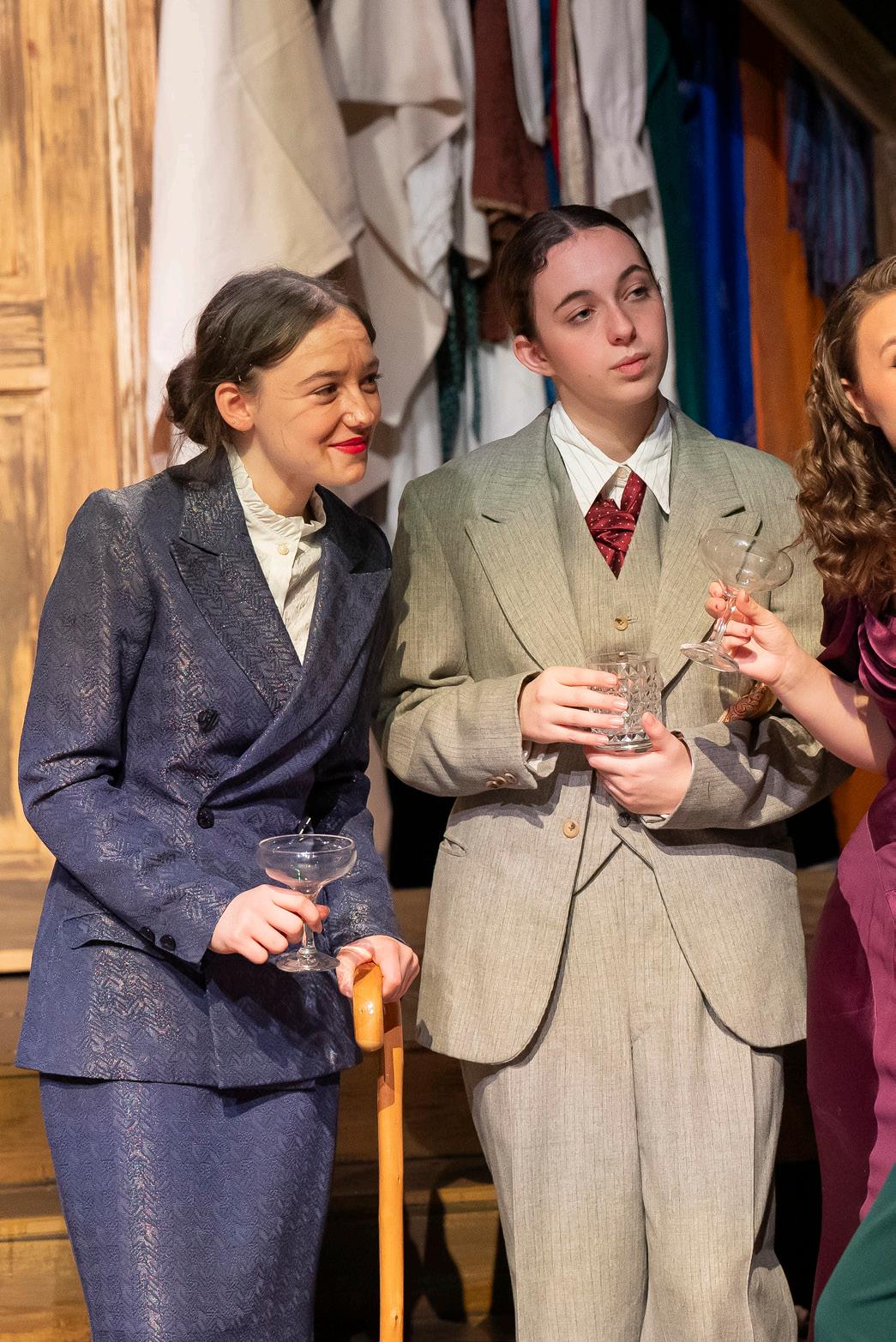
The School operates a sliding scale for Bursary awards based on the needs of the individual. A separate application is required before the Bursary Application Deadline (Friday 10 October 2025). Awards are made at the absolute discretion of the School.
New applications for a bursary can be made online via https://www.channing.co.uk/bursaries/ We advise all candidates to first read the guidance notes so they can start compiling the documents that need to be uploaded with the bursary application. The bursary application deadline for Year 12 entry in 2026 is Friday 10 October 2025. Unfortunately no new bursary applications can be considered after this date.
Funding for Channing Year 11 families continues into the Sixth Form. We advise Channing Year 11 families currently in receipt of a bursary to contact the Bursar’s office using bursar@channing.co.uk if they have any queries regarding their existing bursary.
Channing offers a number of Sixth Form Academic Scholarships of up to 50% of the tuition fees to students of exceptional ability and potential. We will host an Academic Scholarship exam in Channing after school on Wednesday 5 November 2025 (4.15pm - 5.15pm).
The exam consists of a 30 minute general paper (critical thinking, logic and reasoning) and a 30 minute subject specific paper of your choice, ideally in one A Level you plan to study in Sixth Form.
Please inform the Admissions Office via admissions@ channing.co.uk by 10 October 2025 if you would like your daughter to sit the Academic Scholarship exam and which subject paper your child prefers.
Art Scholarships worth up to 50% of tuition fees are available. You should currently be studying GCSE Art. Please prepare a portfolio of ten to fifteen well presented pieces of work of your selection, including one sketchbook and one piece of work produced independently of school.
Candidates are asked to inform the Head of Art of their wish to apply for an Art Scholarship by writing to admissions@channing.co.uk by Friday 10 October 2025.
Candidates are expected to leave their portfolio with the Channing Senior School Reception desk before 9am on Tuesday 4 November 2025. Please ensure this is clearly labelled with your name.
Successful candidates will be invited to an interview with the Head of Art in November, when they have a chance to discuss their work in more detail. Candidates are expected to bring their portfolio with them to the interview. The Admissions Office will write to each candidate individually with further guidance including an interview date and time that is unique to them.
Music Scholarships for up to 50% of the tuition fees are offered to applicants of exceptional ability and potential and include free tuition in school for one instrument. We recommend that applicants have passed their Grade VI with merit prior to November 2025 in order to qualify for an audition. Equivalent evidence will be considered.
Candidates studying GCSE Music will be expected to bring samples of their compositions to the audition. Candidates must apply by sending a letter of application to the Director of Music enclosing copies of the mark sheets (NOT certificates) of the most recent examinations for each instrument/voice. The letter should contain details of your musical experiences, solo and ensemble and indicate what you feel you could contribute to Music at Channing. The letter of application and attachments should be sent by email to admissions@channing.co.uk by Friday 10 October 2025.
Sixth Form Open Evening: Tuesday 9 September
Admissions Application deadline: Friday 10 October
New Bursary Application deadline: Friday 10 October
Art Scholarship deadline: Friday 10 October
Music Scholarship deadline: Friday 10 October
Admissions Interviews: 3 November to 12 November (inclusive)
Art Scholarship Portfolio Handed in: Tuesday 4 November
Art Scholarship Interviews: November
Music Scholarship Auditions: November
Academic Scholarship exam: Wednesday 5 November (4.15pm – 5.15pm)
Offers published: Monday 1 December
Deadline to accept offer: Wednesday 10 December
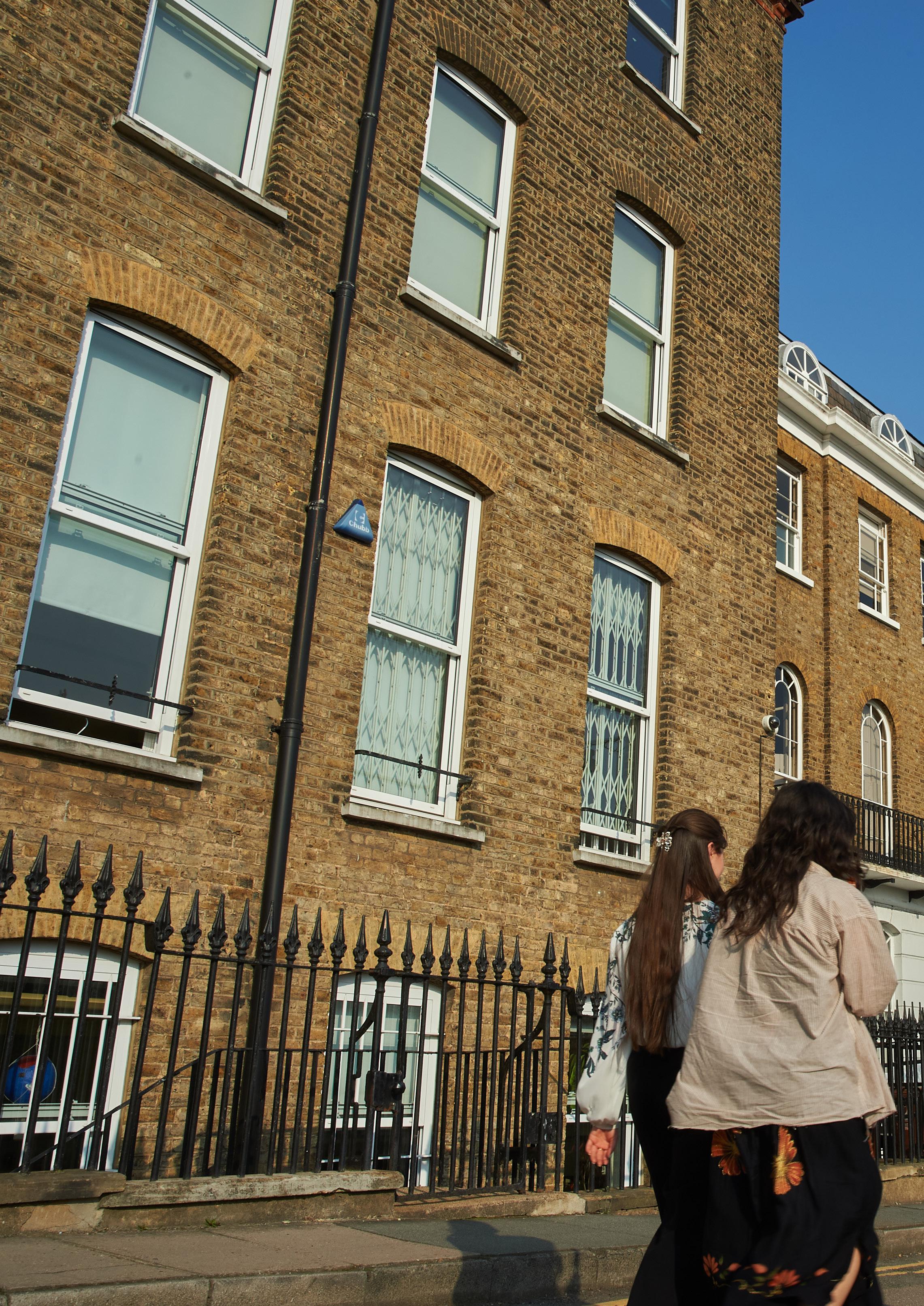
HEADMISTRESS
Mrs Lindsey Hughes
SENIOR DEPUTY HEAD
Mr Freddie Meier
DEPUTY HEAD (ACADEMIC)
Ms Rosie Flint
ACTING DIRECTOR OF SIXTH FORM
Mr Geordie Raine
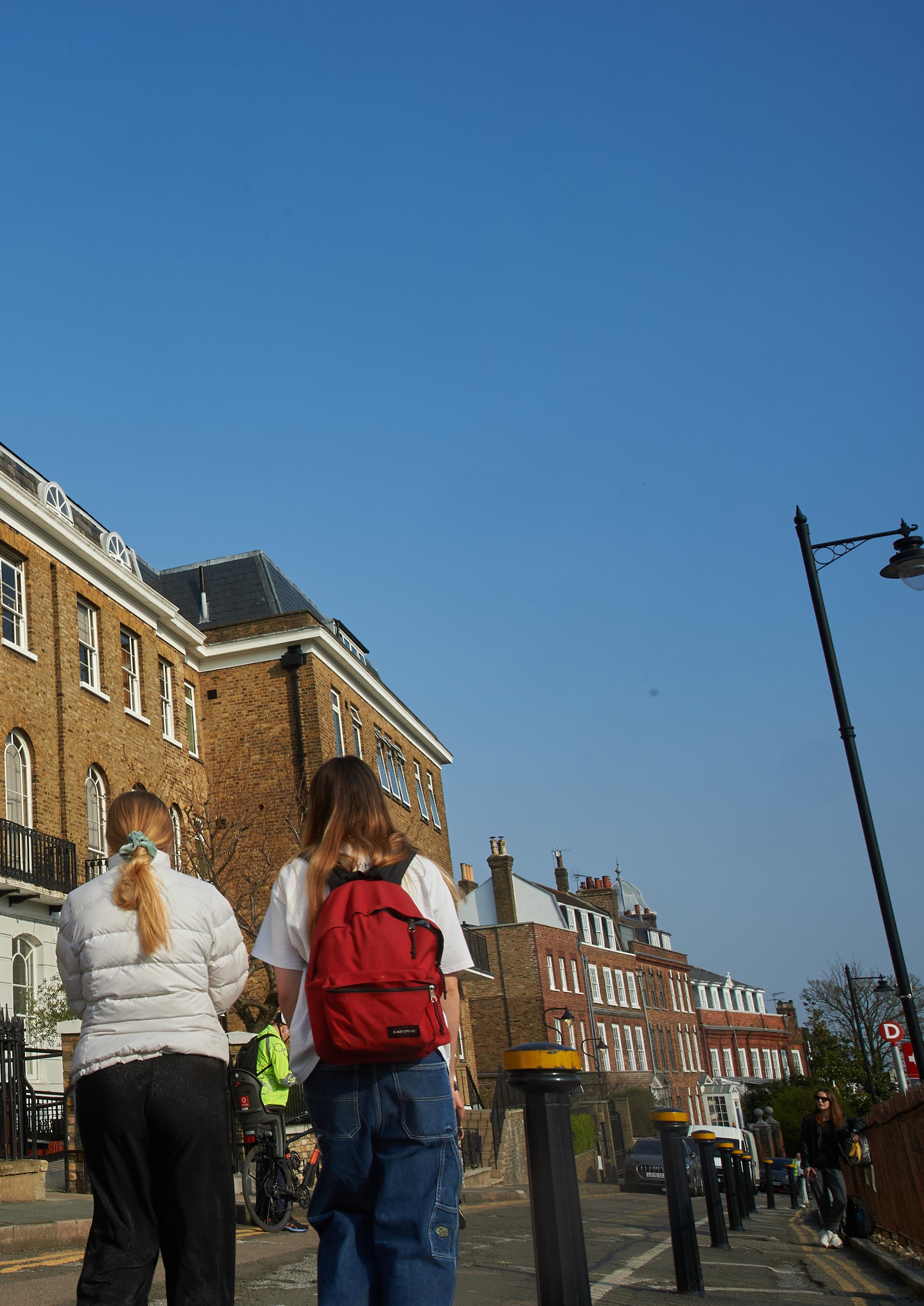
ASSISTANT DIRECTORS OF SIXTH FORM
Mrs Rachel Williams and Miss Imogen Walker
DIRECTOR OF SOCIAL IMPACT
Ms Jennifer Kung
HEAD OF YEAR 11
Mr Peter Martini-Phillips
OXBRIDGE CO-ORDINATOR
Ms Tamsin Benns
HEAD OF CAREERS & HE, MEDICAL APPLICATIONS COORDINATOR
Ms Nicola Wilberforce
REGISTRAR
Mrs Rosie Gilleece admissions@channing.co.uk
